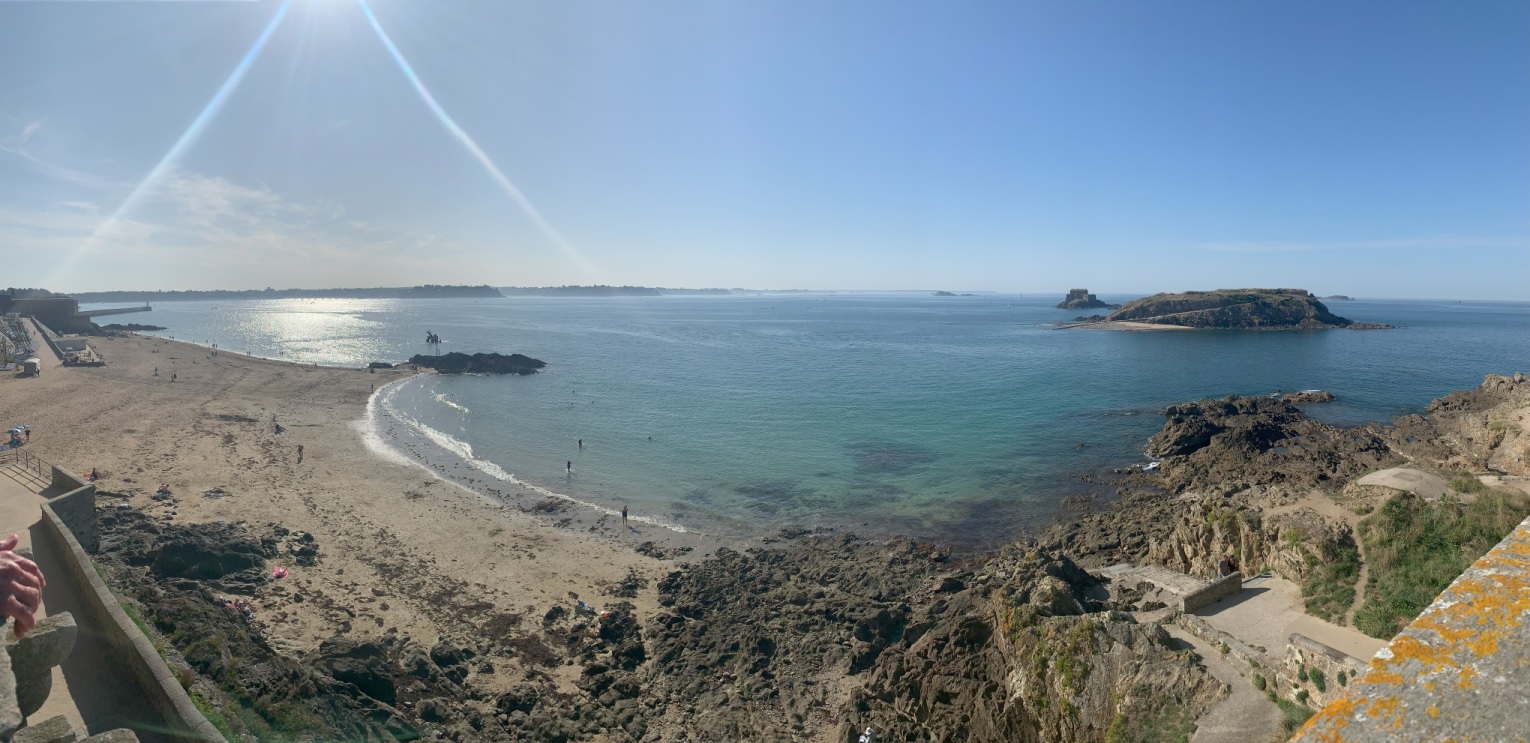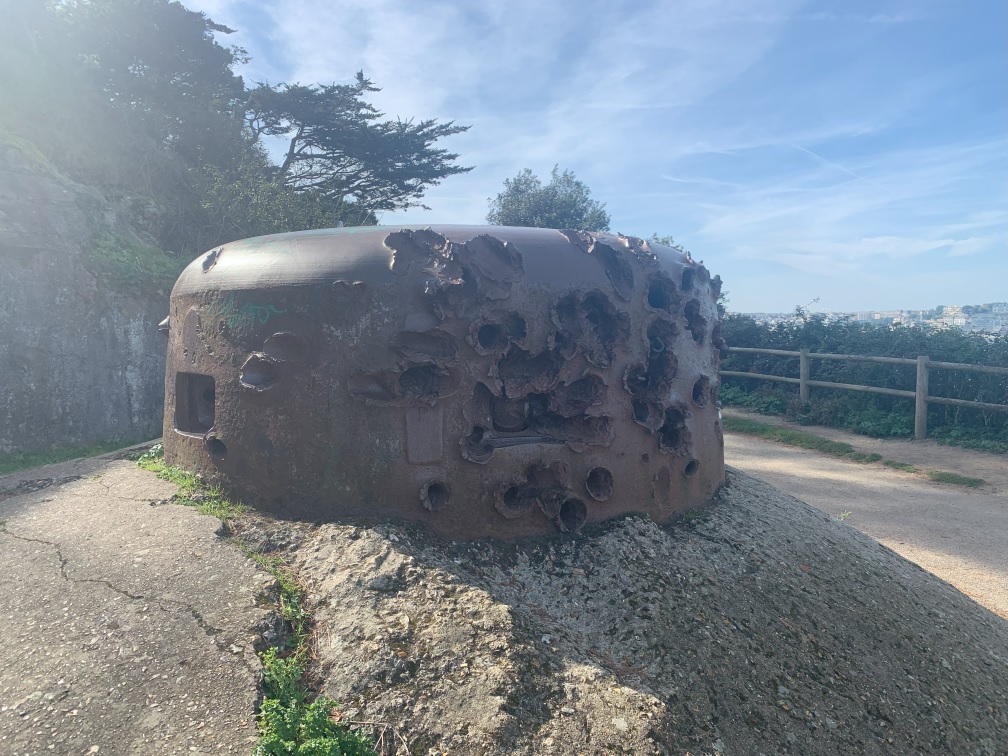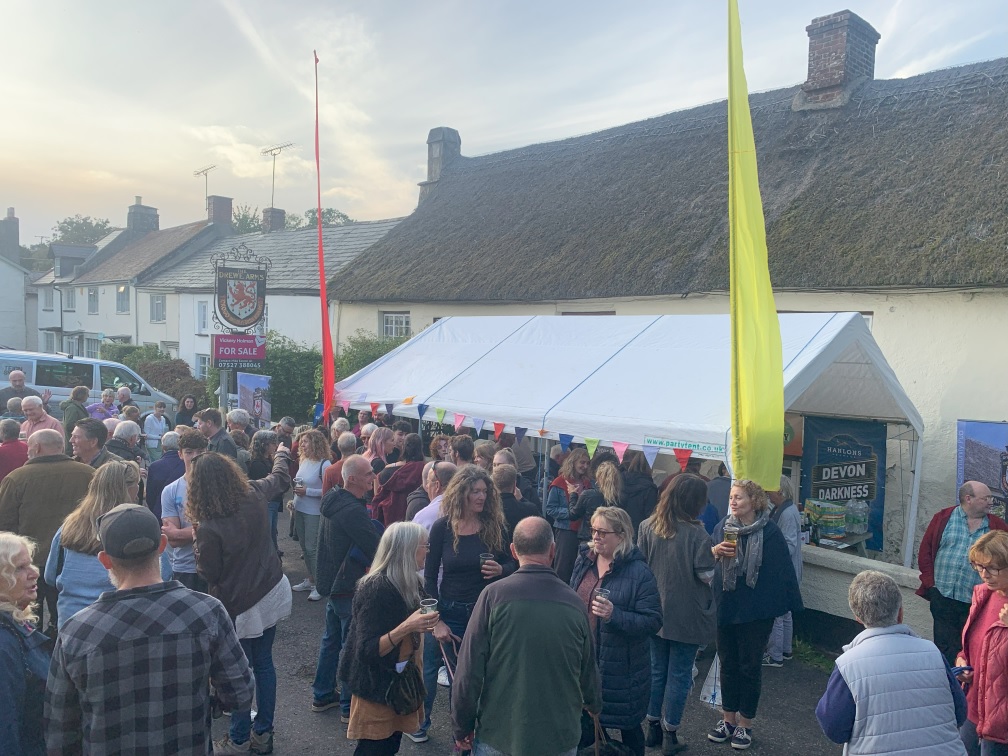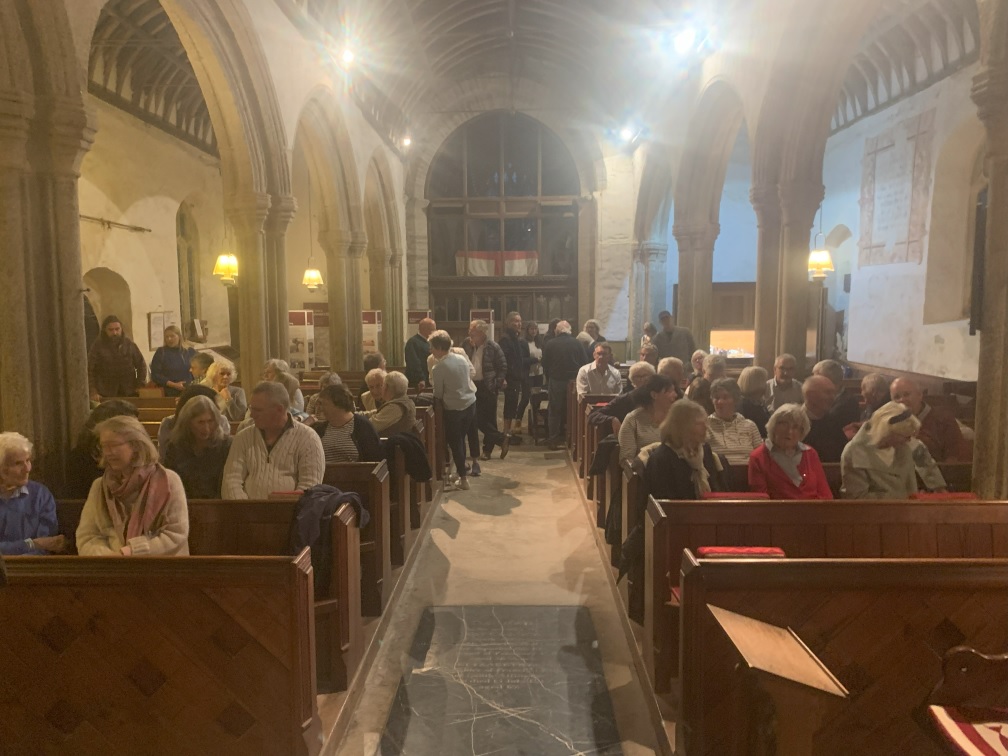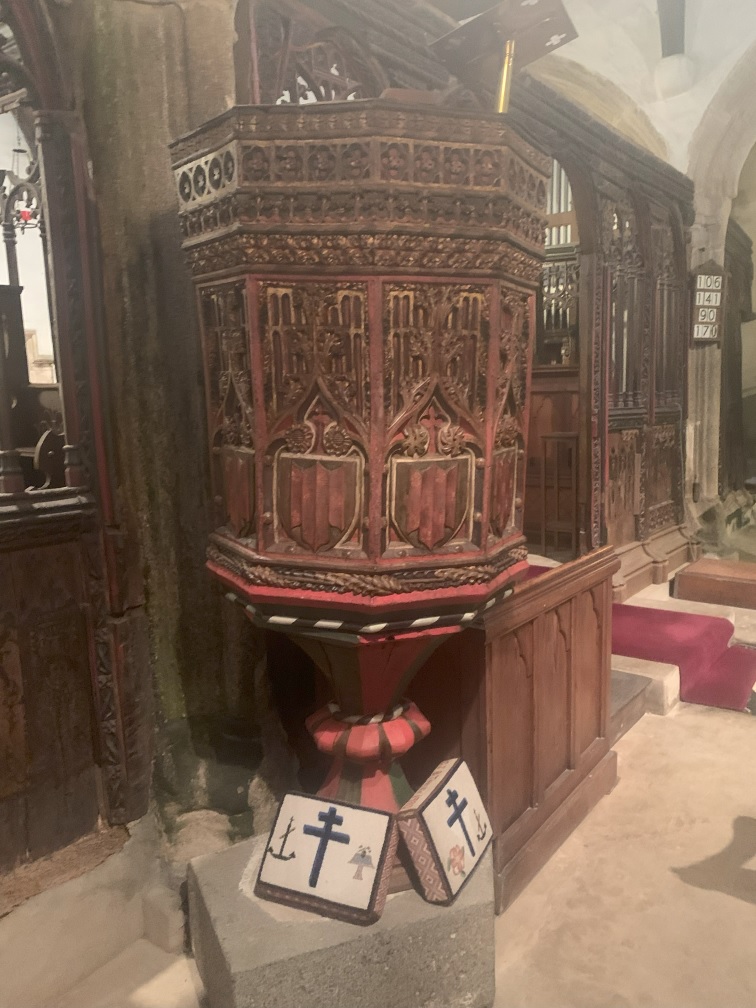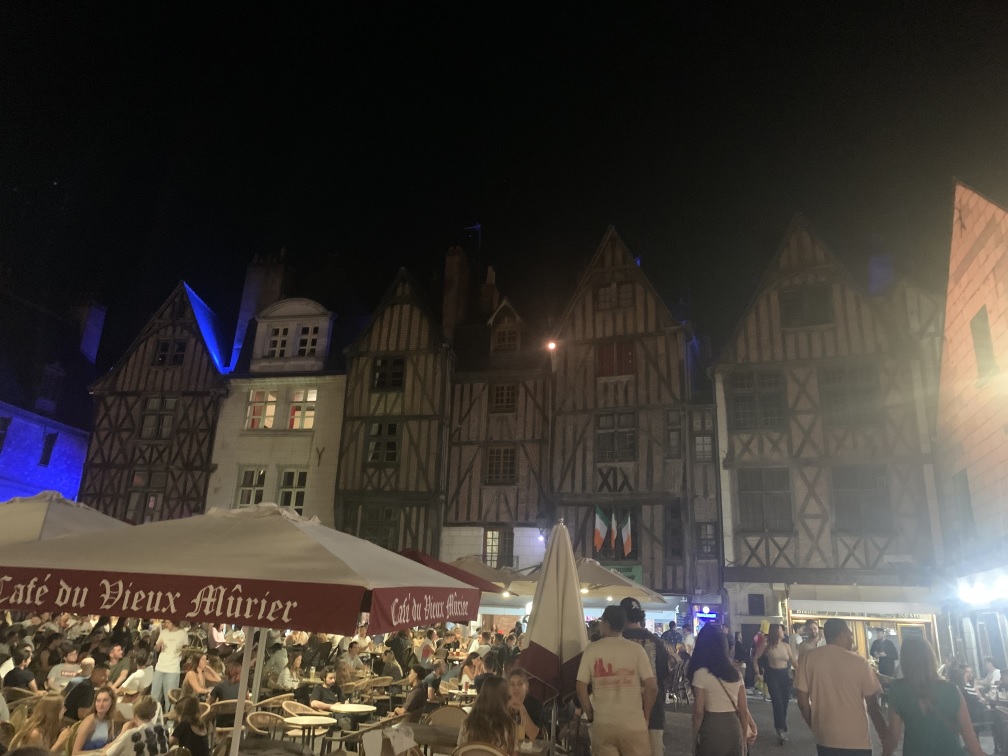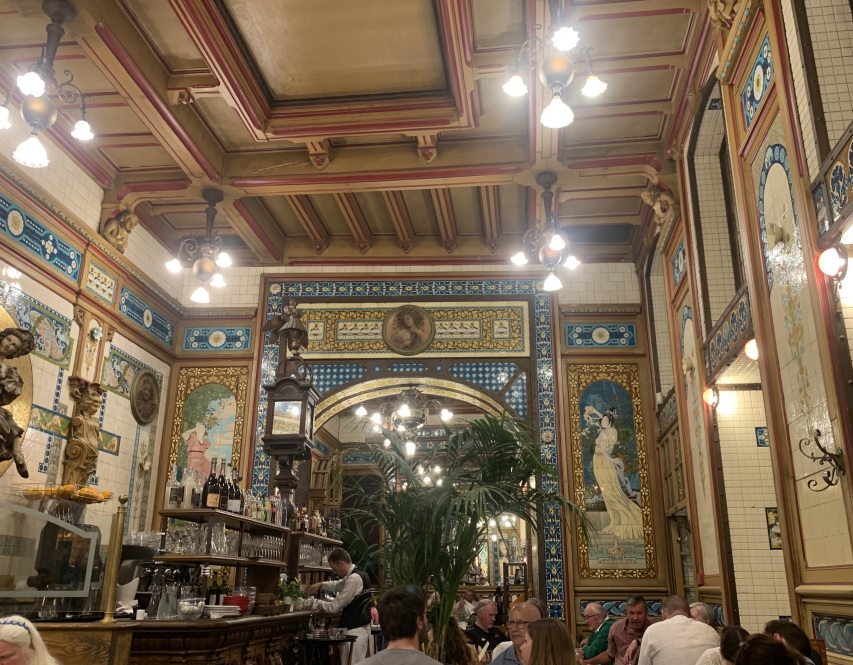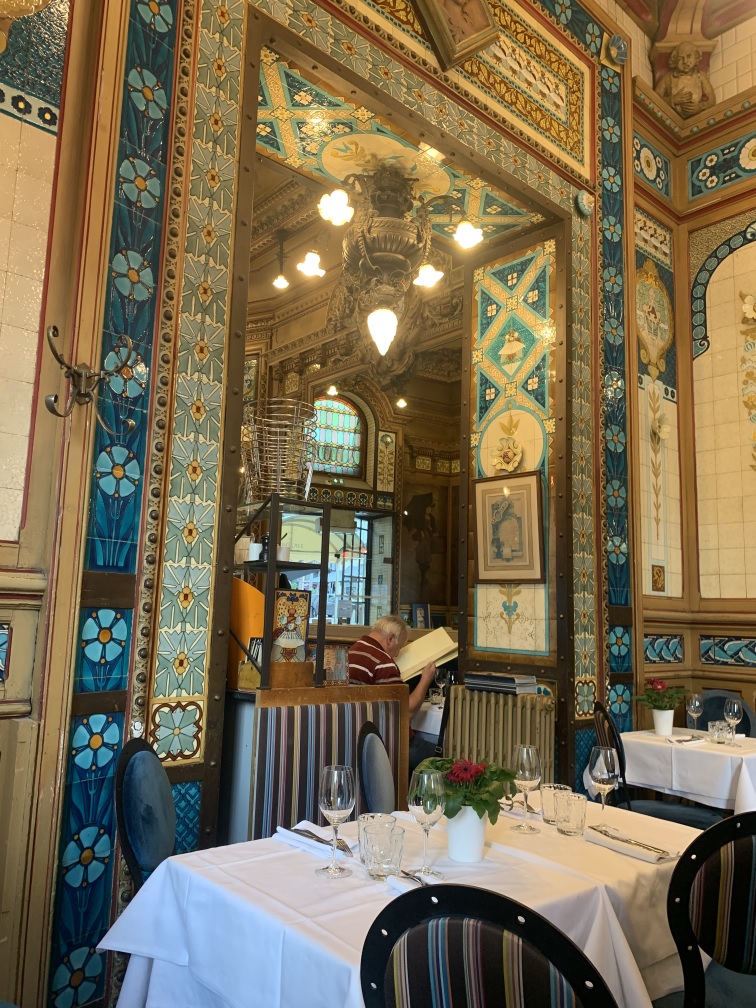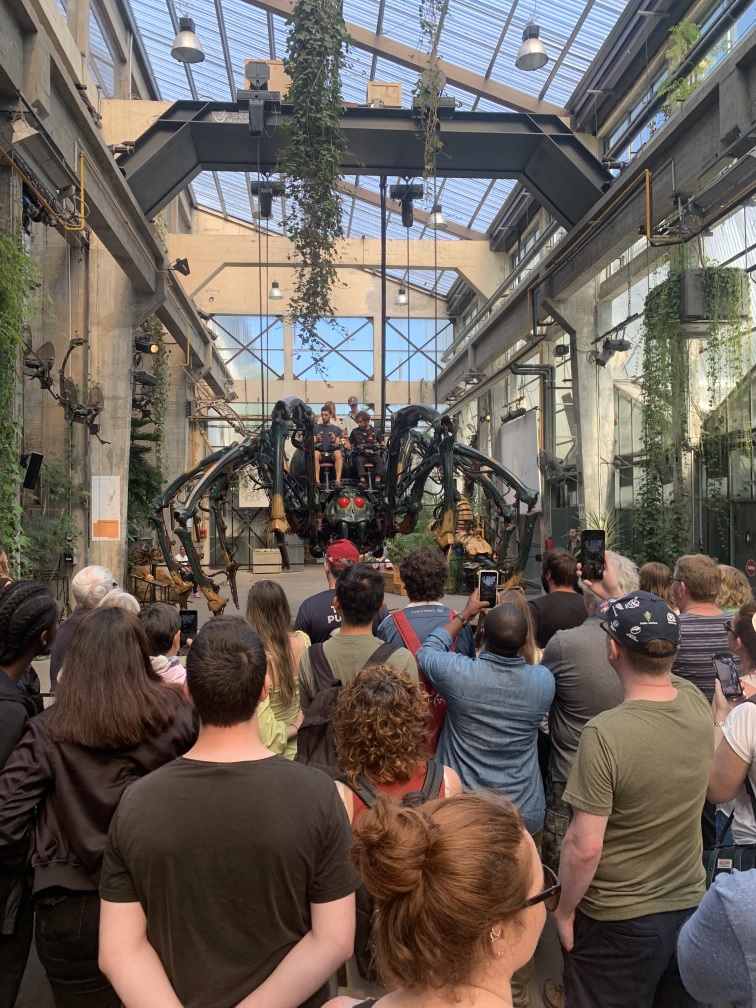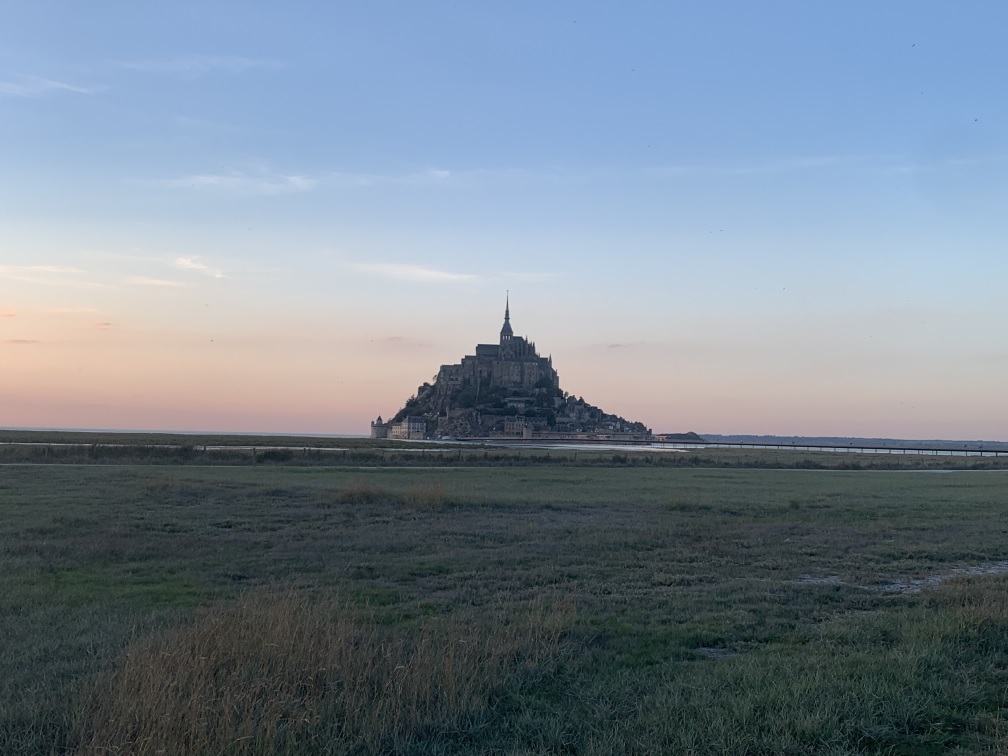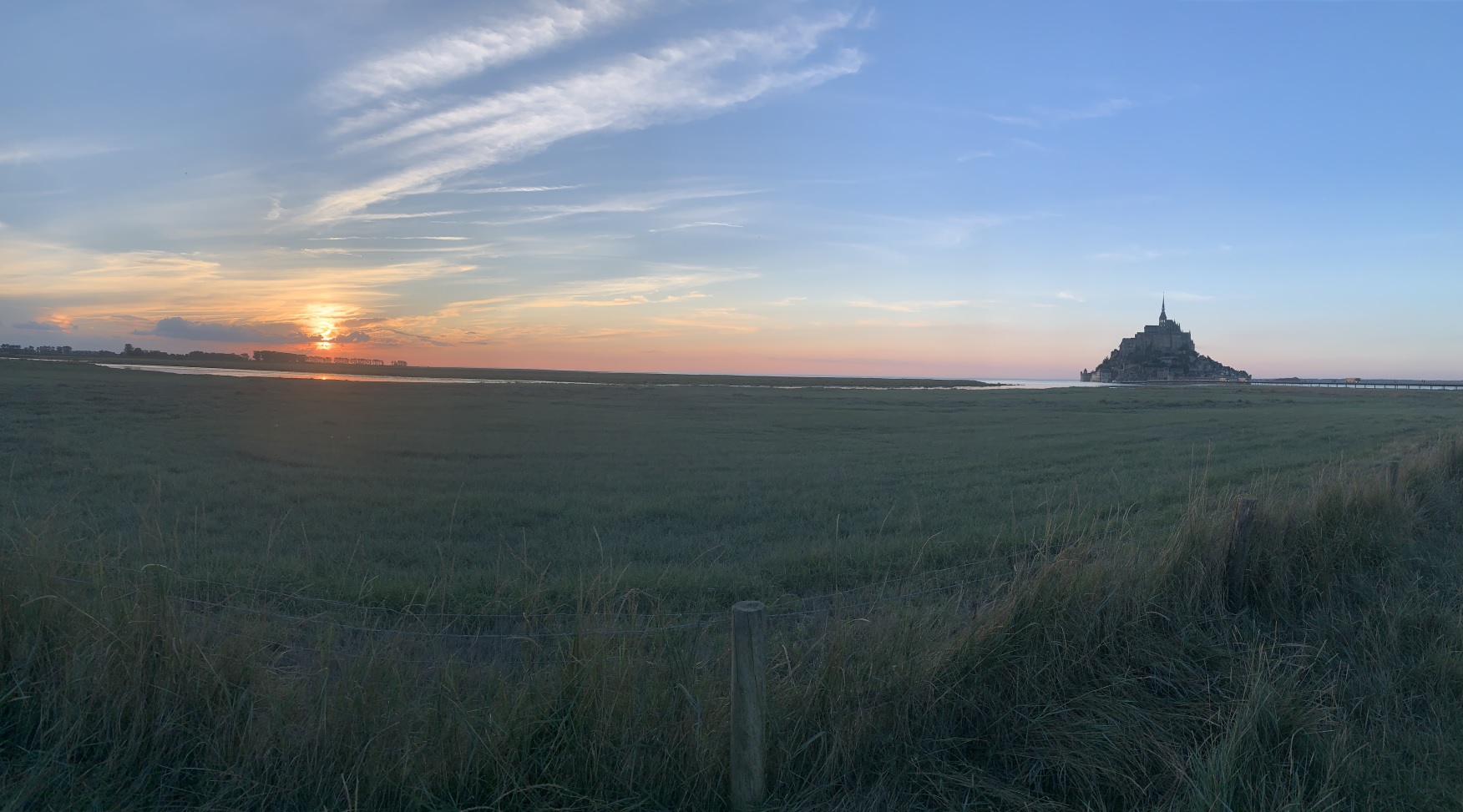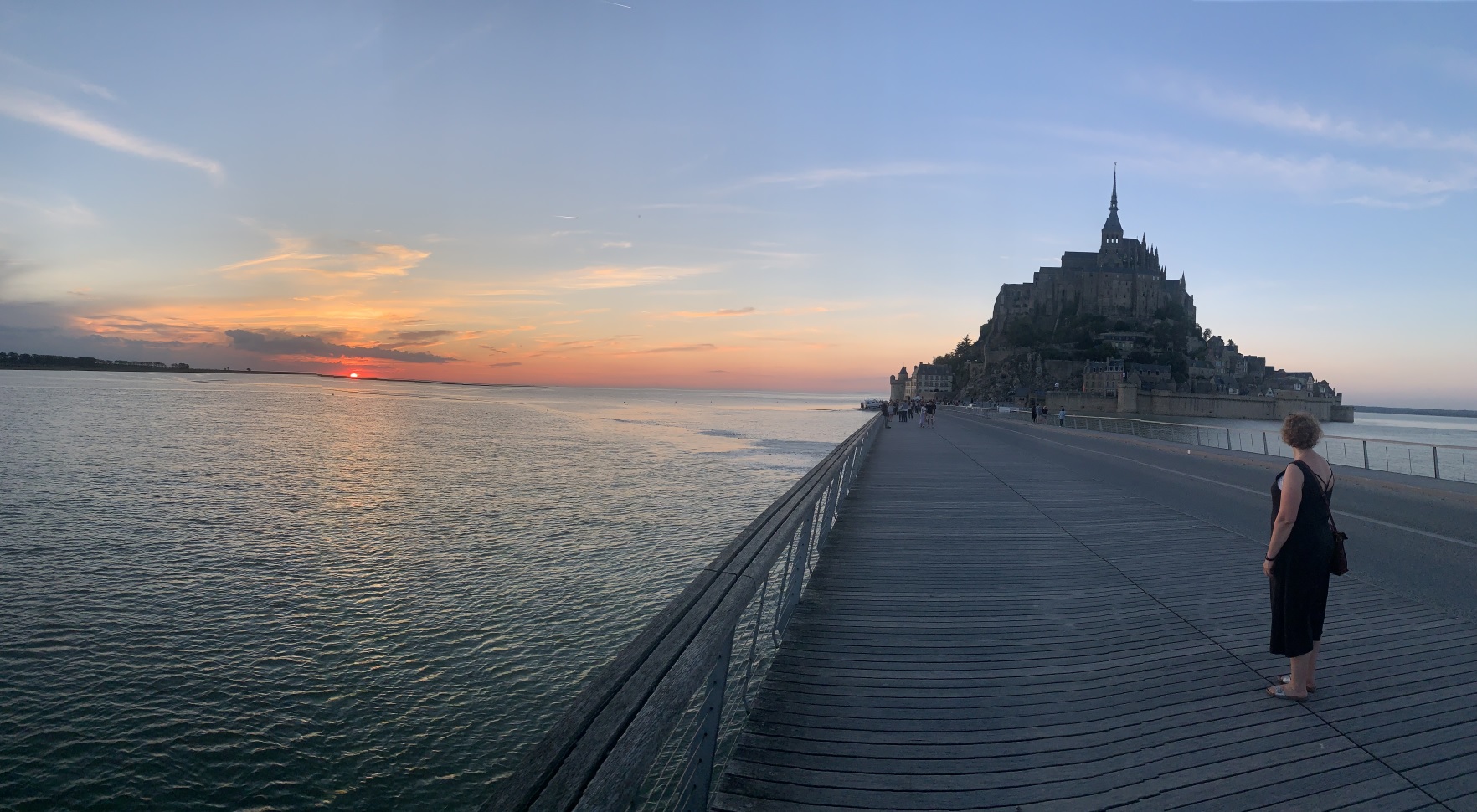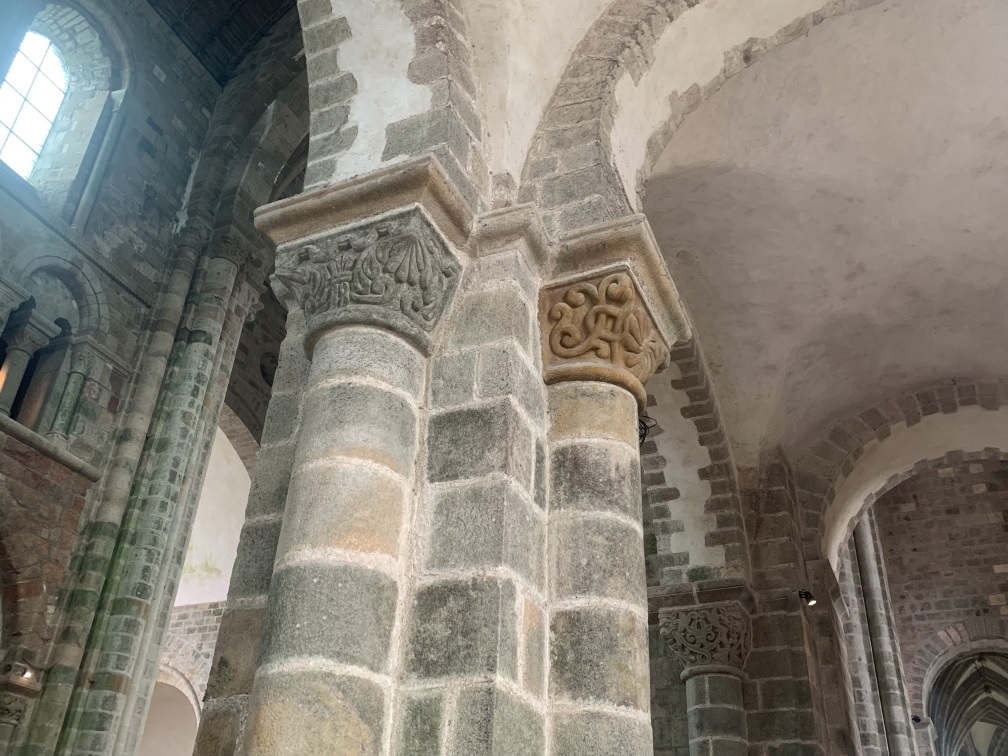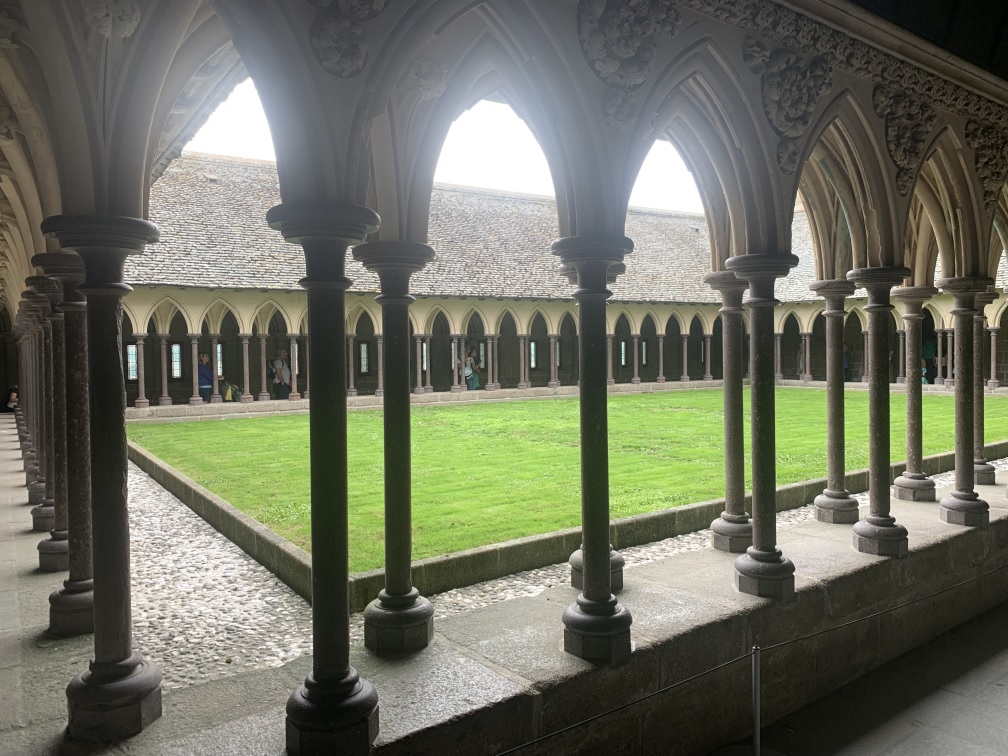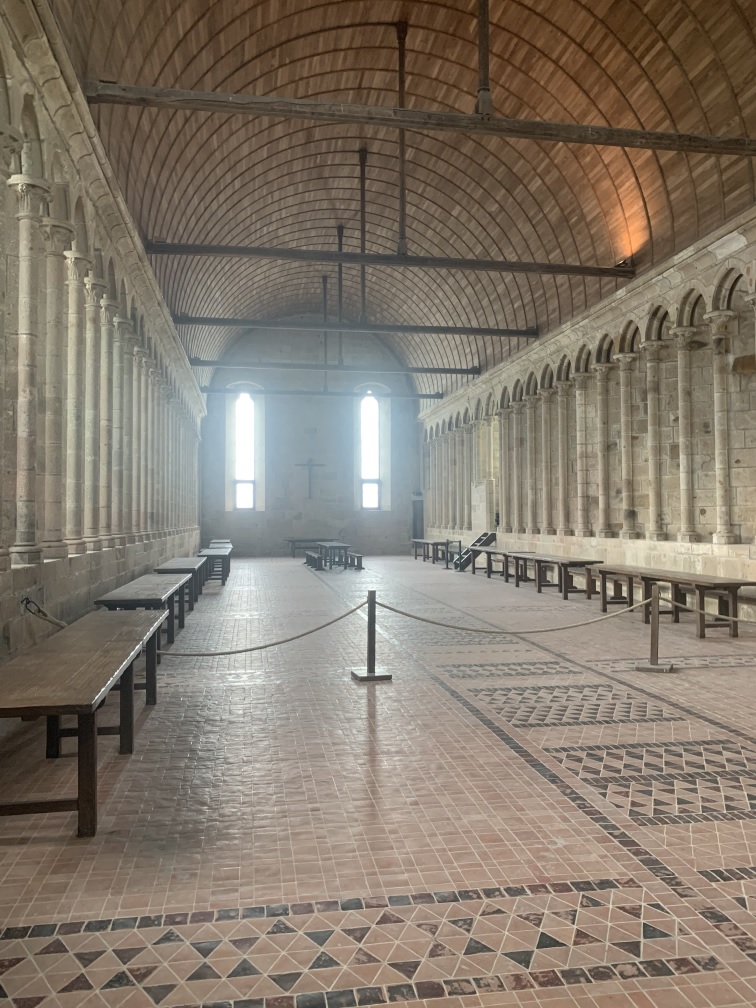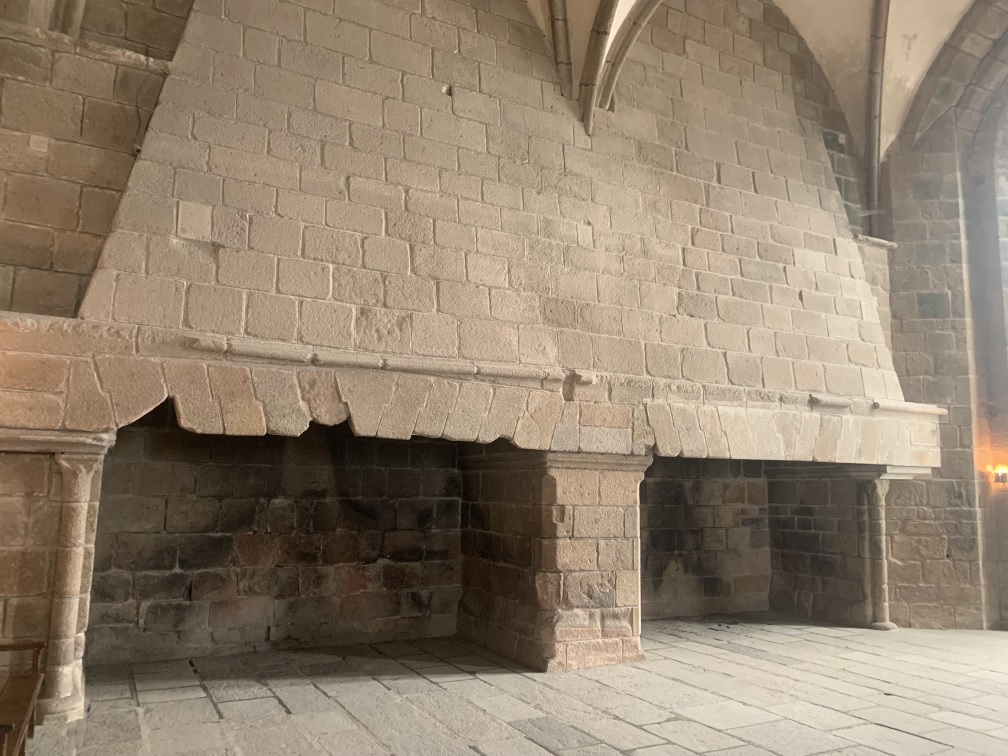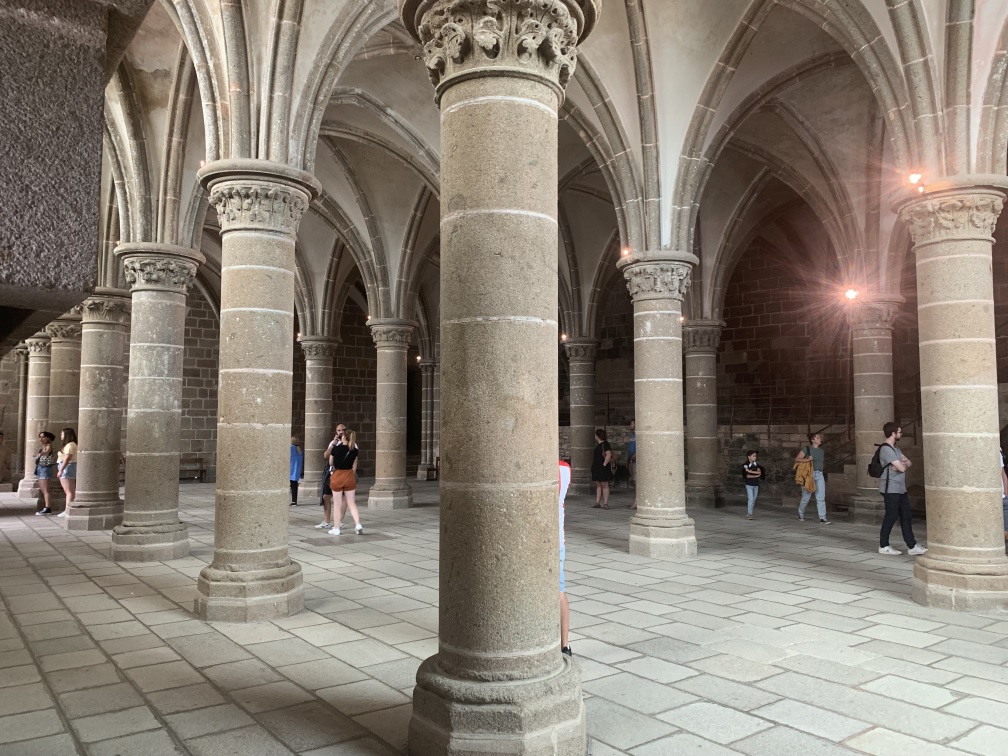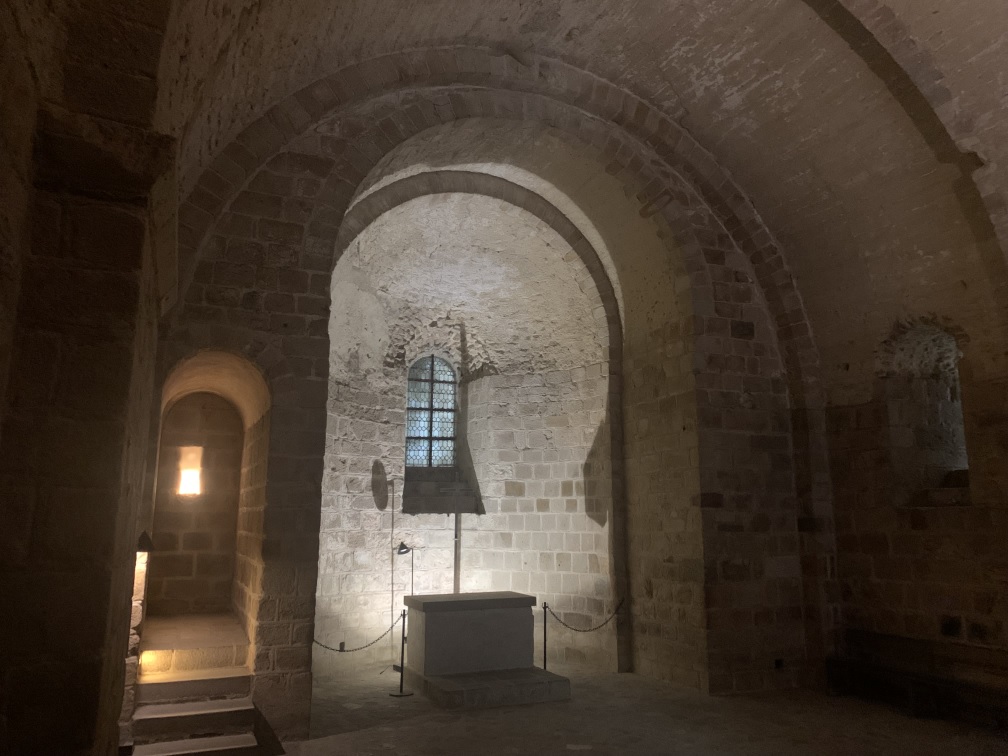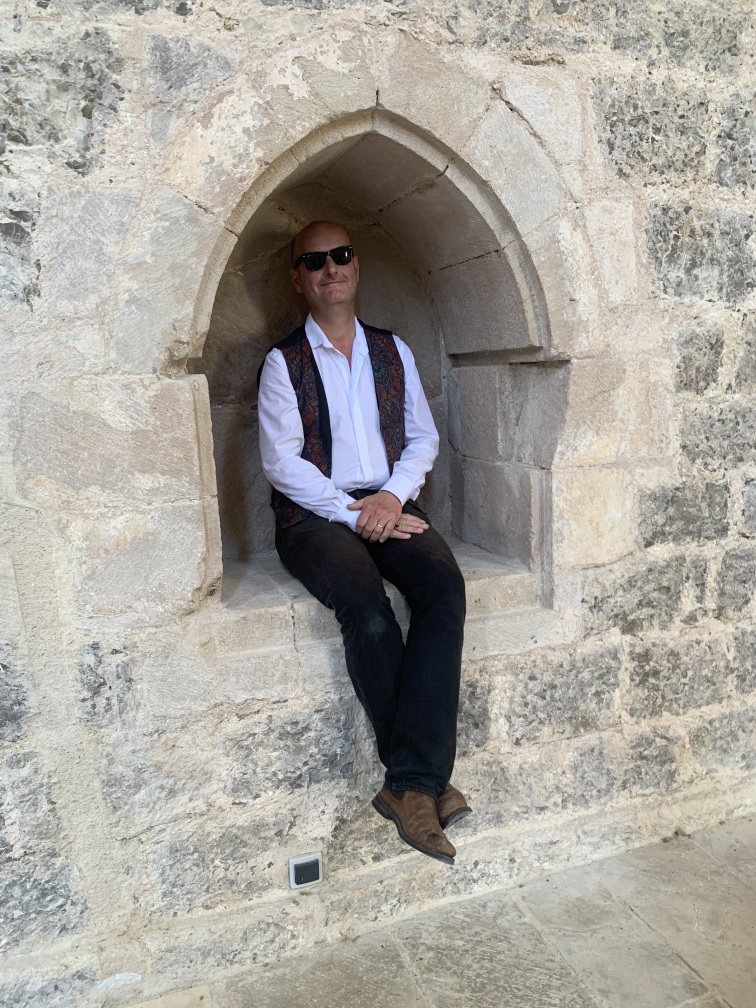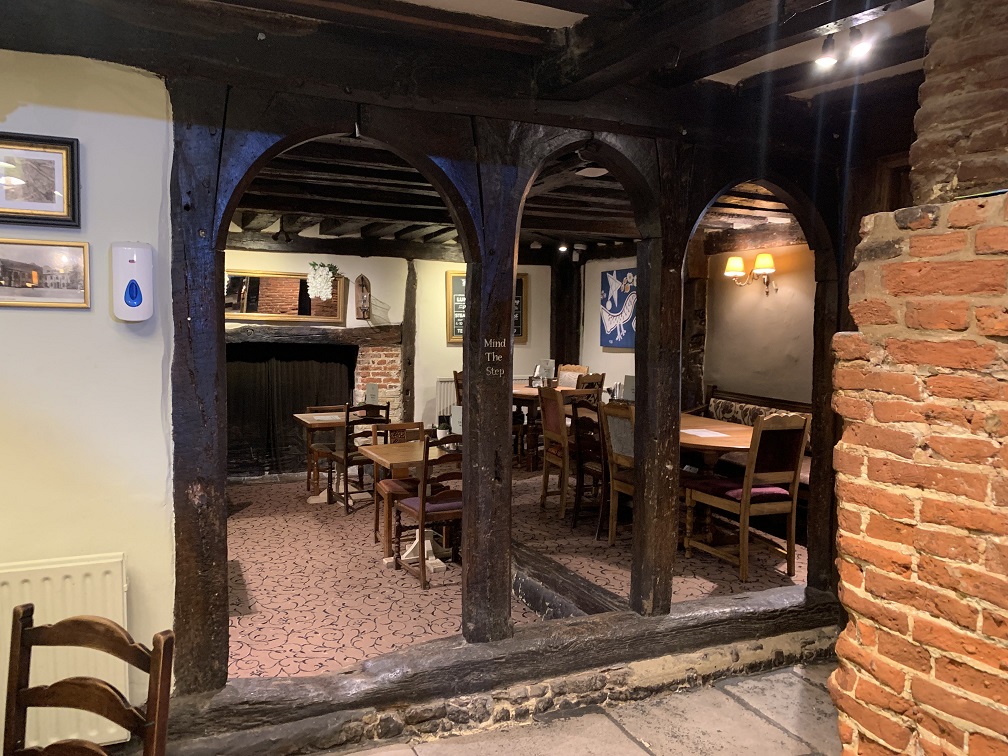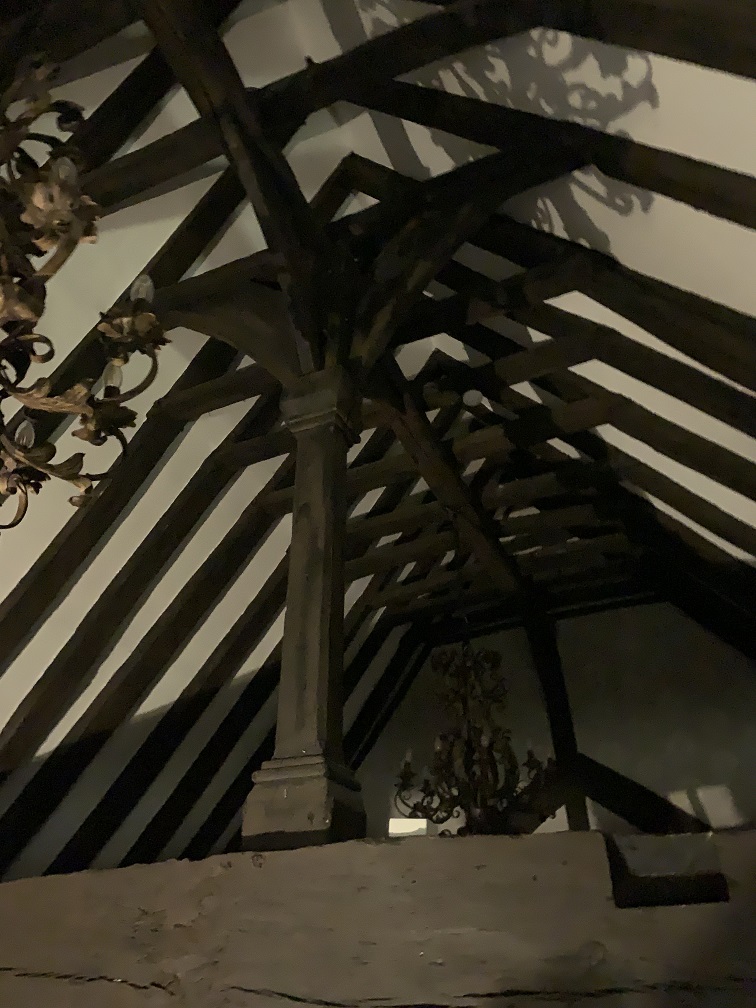home > what was new in 2023? |
Ian Mortimer |
What was New in 2023?
25 December 2023 And so we come to the end of another year. Written more than ever before in a single year - almost 300,000 words - but a lot of it is experiemntal stuff, so perhaps won't see the light of day for a little while. In the meantime, my best wishes to all my friends and readers for the festive season and the New Year. If you want to see my Christmas poem for 2023, it's been added to the ever-growing collection. This year's Christmas tree, just over 14ft high. We do love a big tree.
23 December 2023 Very proud dad today. My younger son, Oliver, completed his 250th parkrun: a milestone. There can't be many young men who've completed 250 parkruns before the age of 21. His sister and brother came along in support, so I am very proud of them too for showing such loyalty. The Mortimer family at Parke parkrun, Devon, 23 December 2023.
11 December 2023 In case you've read through the entries below and have concluded that I've given up writing history for visiting drinking establishments, rest assured I am still undertaking research - but into medieval pubs! Sophie and I have now visited all the medieval hostelries (including the supposedly medieval ones) we can identify in the counties of Cornwall, Devon, Dorset, Somerset, Wiltshire, Hampshire, Surrey, London and Middlesex, Sussex, Kent, Hertfordshire and Essex. Plus we've started on the Midlands too - covering Lincolnshire, Nottinghamshire and Derbyshire. The King's Arms in North Weald, Essex.
9 December 2023 Just as one local boozer opens up again, another very sadly closes. Sophie and I have really appreciated having the Bottle Shop at the end of the street for the last eighteen months. Very sad to see it go. But what a party to see its last day out. Yes, there was music and yes, after a few too many glasses, I did a set. 'Don't stop me now' by Queen, 'One night with you' by Elvia and 'I will survive' by Gloria Gaynor. I think the embrassment levels have just about returned to normal now. Not singing for my supper but for the next glass of wine.
8 December 2023 The Drewe Arms in Drewsteignton - about which I wrote a little below (see 29 September) - has been bought by the community of Drewsteignton! Terrific news. All credit to the team who made it happen. It's a seventeenth-century building, so wil not qualify for my survey of medieval and pseudo-medieval pubs in England, but it's a treasure. The only pub left in Devon without a bar (it has a tap room and hatch) and, best of all, it's only six miles from Moretonhampstead - only four if you walk over the hills. View of the taproom. Fireplace in the Front Room is a bit incongruous but the fire was very welcome. (Fireplace in the middle room is seventeenth century and much more in-keeping.) Sophie in the Front Room. And the free beer on the special occasion of the community taking possession was even more welcome!
12 October 2023 Never been to St Malo before. Fascinating place. I was particularly struck by the gun emplacements built to defend the shore from allied attacks during the Second World War. What accurate shooting to do that much damage to the steel work - and from the sea as well. Must have been terrifying to face that barage - especially if you were inside one of these steel cans. The shells had gone straight through a foot of steel in some places. View from the ramparts of the town. One of the gun emplacements, showing its land side and part of its sea-facing side.
29 September 2023 This evening I joined the good people of nearby Drewsteignton to launch the share offer for their wonderful local pub, the Drewe Arms, which they (and I) want to turn into a community-owned building and buisness. It was the New Inn in the eighteenth century, when the landlords were the Smith family. It later became the Druid's Arms, named after the local cromlech. When the Drewe family started to build Castle Drogo in 1912, Julius Drewe asked that the name changed to his family name. It is now the only pub in Devon without a bar - only a serving hatch - and is well-known for having been run by Mable Mudge from 1919 until 1994. She retired at 99. The Drewe Arms
27 September 2023 Very much enjoyed giving my talk on my book, Medieval Horizons, in East Prawle last night. I managed to see Prawle Point - most southerly spot in Devon - as well as the fine local pub, the Pig's Nose. My talk was in the church, which proved a great venue. It has a fifteenth-century pulpit carved out of one piece of wood. Prawle church. The pulpit in Prawle church.
20 September 2023 I've signed the contract with The Bodley Head for my book entitled The History of England through the Windows of an Ordinary House. You can read a short description of it here.
19 September 2023 A couple of weeks in France is always good for the historical imagination, the knowledge banks and the soul. Sophie and I made our way down south via Tours and Masclat to Toulouse and Laguepie, then came back north via Niort, Nantes, Mont St Michel and Coutances. Highlight was definitely Mont St Michel. It exceeded expectations. Here are a few snaps... I was in my element in Tours. Warm evening, a whole square of tables, full of young people drinking and enjoying themselves, all watched over by fifteenth-century merchants' houses. Not far from Masclat where we were staying is the chateau de Fenelon, the childhood home of Francois de la Mothe-Fenelon (1651-1715), royal tutor, novelist and writer on girls'education.
In Toulouse you will find the basilica of Saint-Sernin, the largest Romanesque church in the world. Mostly built between 1080 and 1120. I've been before but it still amazes me. Especially the early use of brick. Four hundred years before it was used in England.
Originally built by Henry II and Richard I, I wanted to see how a two-tower donjon could possibly work. Not sure it does - or ever did - as it seems never to have been a royal residence but to have taken ages ot build and was constantly remodelled, as if the powers that be never knew quite what to do with it. Nonetheless, it's both impressive and unique.
Nantes Cathedral is closed for repairs following damage inflicted by an arsonist. The chateau is underwhelming inside. But La Cigale - a 1900s brasserie - is a spectacular place for dinner. I want to go again already. And you can't go to Nantes without visiting the fantastic Les Machines. The elephant is three times life size. The author in the foreground is normal size and not mechanised. And then to Mont St Michel. Sophie was very keen to see this place. I was too but I was sure it would be better from a distance than up close. I was wrong! And you really can't knock the views from a distance. Nor as you get closer... A glimpse of the heavily restored village on the island, at the foot of the great rock on which the monstaery is built. The scale of the abbey was something I was not prpeared for. Most abbeys are built on a regular plan. Not here, no Sir. The eleventh-century carving in the church wowed me even more when I learnt that Robert de Torigny, the chronicler, had been abbot here for many years and is buried at the west end of the building. He's one of the three major sources for our Norman history, along with William de Jumièges and Ordericus Vitalis How about this for a cloister? Beautiful. But the real wow factor that it is at the top of the rock - there are two great halls beneath its turf. Staggering. The refectory. The Salle des Hôtes. A reception room. Just in case a king drops by with about three hundred knights... The fireplaces in the Salle des Hôtes, just in case you missed them. They're big. The Salle des Chevaliers. I mean, I have never come across such a thing in any other monastery - it reminds me of the Conciergerie in Paris. But that was a royal palace, not a monastery. My favourite parts were probably the very old chapels below the eleventh-century church, built into the rock. This is the tenth-century chapel of St Martin. Dark, ancient and inspirational. We happeend to arrive on a day when there was an acrobatic display after dark, so the whole place was lit up. I don't know if they do this every night but it was a stunning sight. Came back to Blighty by way of Coutances. Here's the cathedral...
And its apse. I love the elegance and refinement of thirteenth-century French cathedral architecture. Finally, a cheeky one of me in the disused abbey church at Beaulieu, near Laguepie.
12 August 2023 Another conversation with Charlie Higson as part of his podcast series, Willy, Willy, Harry, Stee, this time about the enigmatic but profoundly interesting king of England, Henry IV.
26 July 2023 Chatted about medieval life with Charlie Higson, the well-known writer and host of the podcast Willy, Willy, Harry, Stee which was great fun.
24 July 2023 First time I've been to a festival since Glastonbury in 1998 - a whole twenty-five years ago. Thoroughly enjoyed a day at Latitude on a day off from research. The Proclaimers and the Bootleg Beatles put a smile on everyone's faces. It was especially thought-provoking to watch Siouxsie Sioux singing 'Spellbound' 42 years after I bought the single.
22 July 2023 It's ten years since the publication of the American ediiton of my Elizabethan Time Traveller's Guide. So it was very pleasing to see it reveiwed by a website - the Agency Review - that is principally aimed at people interested in advertising. And seeing that it has meaning for that community too.
22 July 2023 Sophie and I have continued our survey of the nation's medieval pubs. This weekend we visited North Essex, where we are stunned by the quality of the woodwork in several Colchester buildings of circa 1500. Above: Detail from a room in the Marquis of Granby, Colchester, circa 1520 Above: Beams in a first-floor parlour in the Red Lion, Colchester, 1476
18 July 2023 Cassidy Cash, host of That Shakespeare Life podcast, recently interveiwed me about life in Elizabethan times. Great conversation, enjoyed it a lot. It's now live for you to listen to - click on the banner below.
24 June 2023 My wife Sophie and I have recently had a fantastic five-day holiday in Liverpool with friends. I have to admit that I feel that Liverpool is one of England's best-kept secrets. Well, it's a secret from the likes of southerners like me. I loved the architecture, the sense of place, the powerful sense of community and the heritage. It felt like a capital city, walking around, but with more kindness than London. People would just stop and help us if we looked lost. One chap struck up a conversation about what he and I were going to do today as I walked alongside him on the way back from parkrun. That would never happen in the southeast, and I can't imagine it being seen as normal anywhere in the southwest either. So here are a few mementoes of the visit. Above: Ian at the Town Hall, designed by John Wood the elder Above: Ian at the childhood home of William Ewart Gladstone, four times Prime Minister Above: Ian & Sophie at Paul McCartney's childhood home Above: Ian & Sophie at Penny Lane Above: The famous loos at the Philharmonic Dining Rooms, one of the two contenders for the most lavishly decorated pub in the city (the other being the Vines) Above: The historian in his natural environment (the Philharmonic)
16 June 2023 The cover of the paperback of Medieval Horizons has been released by the UK publishers, Vintage.
22 May 2023 I'm very sorry to hear about the death of Martin Amis. I wasn't very familiar with his work and I didn't know him. But there aren't many writers who make people sit up and listen and retain an ebullient originality even after they become famous. I only met him the once, at Brighton in February 2013, when he and I were set to discuss the question 'is humankind naturally violent?' He adopted the Stephen Pinker point of view, outlined in The Better Angels of our Nature, that we are 'progressively' becoming less and less and violent. My response, outlined in my Centuries of Change (otherwise known as Human Race in the UK and Millennium in the USA), is that our tendency to violence is ever-present and just suppressed by social forces and threats. It was good to meet Ian McEwan too that day. I remember being in the gallery of the venue chatting to Martin Amis when Ian McEwan starting reading from his new work, which became The Children Act. Martin suddely stopped talking to me and listened to Ian McEwan reading, in rapt concentration. And when Ian McEwan stopped, Martin turned back to me and carried on the conversation where we left off.
1 May 2023 I'm currently going through the proofs of a new book about the medieval Mortimer family of Wigmore, the cover of which has now been released. This handsomely illustrated tome will be launched at an event at the Tower of London on 1 August 2023 - the 700th anniversary of Roger Mortimer's escape from that fortress. I will be talking about him that day too - about his achievements, for a change. Coincidentally I will also be talking about another medieval Mortimer who escaped from the Tower - not once but twice. The second time it cost him his head. It also cost him his legs, arms and entrails because he was drawn to the gallows and hanged and quartered. Sir John Mortimer was his name; the year was 1424. But who was he? And why did he die a traitor's death when he had been found not guilty of treason? That's the theme of my chapter in the forthcoming book. Details and tickets for this event are availabole from this link. Note, the price for this event includes all-day entry to Tower. So you don't just get me and a bunch of eminent historians but a great medieval castle too.
7 March 2023 Steph Stohrer of the Tudors Dynasty podcast has uploaded a chat we had recently about the speeds of travel and information transfer in the late Middle Ages and Tudor times.
28 February 2023 I just have to say that this afternoon I went ot one of the most impressive lectures I have ever heard, by Professor Ron Hutton on the practice of witch-hunting. what was so special was that it wasn't just fascinating - it was also wide-ranging (covering the whole globe), touched on methodological issues as well as anthropological approaches, and made witch-hunting in the past relevant by relating it to the increasing levels of witch-hunting in the world today. Over and over again I was amazed. I have always thought of witchcraft as an impotent and nonsensical belief, like ghosts. So I was astonished when I heard about Walter Cannon's 'Voodoo Death'. People who truly believe in witchcraft are at risk of being cursed or prayed to death because their faith means such a curse shocks their system - whether with increased adrenalin, fear or heart attack - with the result that they really can die from such 'witchcraft' curses. Thus, is it so ridiculous to introduce laws preventing people killing others with witchcraft, as European countries did in the sixteenth and seventeenth centuries and as Cameroon, Ghana and Malawi have done recently? Prof Hutton told us about his input to a panel discussing this for South Africa: his view is that the reason that people are susceptible is their belief in witchcraft and to legislate will confirm that belief. However, that view must be balanced with the realisation that if the law does not deal with witches, groups of vigilantes will. Witch hunts are regular occurences in sub-Saharan Africa today, with many people being burnt alive for the supposed crime. So many positive things could be said about this lecture. I didn't realise that three-quarters of those accused of witchcraft in English assize courts were acquitted of the crime - and did not hang - whereas in Scotland, where law was much more localised, many more were killed by their neighbours. Scotland's population was perhaps a quarter of that of England in the seventeenth century yet it burnt five times as many witches as England hanged. My question to Prof Hutton about female literacy and the rise of misogyny elicited a long answer about how in some parts of the world, only men were feared as witches - such as Iceland, where it was the rune-readers who were accused of wtchcraft. Hence in Iceland 93% of those killed for witchcraft were male. Nor did I appreciate how ancient and widespread the test of the trial by water was for a witch - it is first recorded almost four thousand years ago. From beginning to end, it was a great lecture. The only downside was the tone of some of the questions at the end, especially from the online audience. Some of these came across as prejudiced, snide, own-trumpet-blowing and disrespectful. But that's academia for you.
27 February 2023 After yet another stress fracture (my fifth in eight years) and taking several months off long-distance running as a result, I've started again. I did the Exeter City Half-Marathon on 12 February, which wasn't pretty but I did get round the course, which was a relief as I was still in pain after just doing a 5K parkrun the previous weekend. It did not help that I was 20lbs heavier than I used to be when I ran regulalrly and had not run more than 10K for about six months. But finishing that in a whisker under two hours was encouragement enough to run in Brighton. I did the first 6K with my brother Robbie before we parted company. I improved on my time from two weeks earlier by almost five minutes. So, all I have to do now is lose the weight and start training again and I'll be back to my usual 1:38 tempo... Actually, no. The historical writing is a higher priority these days. All the projects underway mean that time at my desk is more worthwhile, satisfying and enjoyable than running. I'll keep running to get fit but my competitive instincts are not driving me to do more than that at the moment.
25 February 2023 Southwark Cathedral held a debate in which nine historians argued for 'the greatest monarch' of the British Isles. Not a serious endeavour - Athelstan wasn't represented, nor were Alfred, William I, Henry II or Edward I. Robert the Bruce wasn't a candidate either, nor Hywel Dda nor Llewelyn ap Iorwerth. Nevertheless, I was very pleased that Edward III came out on top. During the debate, I nipped out across the road to the headquarters of Times Radio and did an interview with Hugo Rifkind about Medieval Horizons, which was thoroughly engaging and very enjoyable. Just as much fun was the interview I did with Oliver Webb-Carter for the magazine and podcast, Aspects of History, which went live today. And to make it an even better day, Helen Carr reviewed the book very positively for The Spectator: 'In his razor-sharp book, Mortimer argues the case for the wonder of the Middle Ages with rigour, verve and, above all, evidence.'
24 February 2023 I went around a few London bookshops signing copies of Medieval Horizons - Goldsboro, Hatchards, Foyles and Waterstones in Piccadilly. The first two will despatch you a copy if they have one in stock.
23 February 2023 Medieval Horizons is out! To mark publication day, I spoke about the book at Southwark Cathedral and signed copies. BBC History Magazine also kindly made available the BBC Extra podcast, in which I speak about the book with Emily Briffet.
19 February 2023 The second review of my new book, Medieval Horizons is in today's Mail on Sunday. The reviewer, Simon Griffith, says 'Ian Mortimer has an invigorating way of looking at history, seeing things not just from the top down, the traditional narrative of kings and statesmen, but also from the bottom up, taking into account the lives of ordinary people. It’s an approach that pays real dividends in this sparkling re-evaluation of the Middle Ages... It’s the small details that grab the attention, such as Mortimer’s explanation of how the rediscovery of mirror-making, a skill lost in the Dark Ages, helped foster self-awareness and contributed to the rise of individualism... Mortimer’s analysis of the evolution of modern English is particularly compelling... An eye-opening book that challenges our preconceptions and prejudices about the past.'
11 February 2023 The first review of my new book, Medieval Horizons is in today's Times. In case you don't have access, the reviewer's final lines are 'Medieval Horizons doesn't set out to be a comprehensive survey of medieval England, but rather challenges us to rethink the Middle Ages and its social, cultural and intellectual innovations. Mortimer is a compelling advocate for our medieval inheritance. He is right that we should be proud of it.'
9 February 2023 Yesterday I heard that my agents have secured a deal for my new book Medieval Horizons to be published in Greek. Never had a book translated into Greek before. Very exciting. Thus will be the seventeenth foreign language in which a book of mine has appeared or is due to appear (the other sixteen being German, Italian, Spanish, Portuguese, Danish, Czech, Hungarian, Polish, Estonian, Latvian, Ukrainian, Russian, Simplified Chinese, Complex Chinese, Japanese and Korean).
7 February 2023 This month our medieval pubs project continued with a long weekend vsiting thirty-two hostelries in Kent, in the lathes of Sutton-at-Hone and Aylesford. These trips always spring surprises on us. I loved the fireplaces in the Bull in Otford: we almost didn't bother going in, the place looks so ordinary on the outside. I'm glad we did though - lovely pub and inspiring visit. I think at least one of the fireplaces (the right-hand one) came from the old archbishops' palace nearby, as well as the roundels in the panelling above the left-hand fireplace. But the undoubted highlight of the weekend was the Wealden Hall in Larkfield. It isn't an ancient pub - in fact, it has only recently been restored and become a licensed premises - but what it lacks in pub heritage it more than makes up for in late-medieval features. Such as these service-end doorframes. How often do you see all three together in a public house?
22 January 2023 Today is Lord Byron's birthday, which I always celebrate as he was a boyhood hero of mine. He would be 235 today. But another reason for celebration is that I've just received an advance copy of my new book, Medieval Horizons, which will appear in bookshops in the UK on 23 February. In some ways it is my most personal history book to date; the last paragraph in particular could be taken as a summation of my philosophy of history and the driving force of my career. And, for me, it's a relatively short book. Especially considering it is an introduction to five hundred years of social change. I have to admit, I'm very pleased with it. It does what very few other historians are trying to do - to impart a feeling of what it is to understand one's place in time.
17 January 2023 My wife and I have a project in hand, to visit every pub in England that either is medieval or claims to be. It will take us more than four years to see them all as there are over a thousand. This month we finished looking at Sussex and started on Kent, where there are over one hundred supposedly medieval pubs. One of the highlights was the George & Dragon in Speldhurst, which is a magnificent fifteenth-century building with a crownpost roof (see below).
4 January 2023 I started my 'What's new?' page last year with the hope that it would just turn out to be a happy New Year. And look what happened. A Russian invasion on a neighbouring state - which would have been able to defend itself with nuclear weapons had we in the UK and USA not encouraged them to give them up in 1991, guaranteeing the country's safety in the unlikely event of an attack. Who would have believed the events of 2022 in this respect? They led on to so much misery. And they deepen and deepen, 'like a coastal shelf'. The recent attack on reservists called up to fight and kill in Ukraine has resulted in calls for 'revenge' from Russian citizens - for what? This attack was part of Ukraine's revenge for what it has suffered since 24 February 2022. I don't see any end to this conflict now. Except that a cataclysm might bring people to their senses. And that is not a cheery prospect. Last night I read some frightening words by an economist talking about the outlook for Russians in an article in The Moscow Times: '“The economy is unlikely to be the main source of news in 2023... It’s difficult to imagine the war could last another 10 months and not bring about a cataclysm.” And that's not starting on the personal tragedies and reversals of fortune that 2022 held. I am not a believer in the power of prayer, so I find myself marshalling what resources I have at my disposal. Work is the main one; music and the landscape the other two. So I find myself at my desk a lot, with the turntable keeping me and the cats company, with occasional long walks over the hills here in Dartmoor. I haven't been able to run since October due to yet another stress fracture (fifth one in six years) but will have to start soon as I have two half marathons booked in for February. But I do feel very optimistic about the next two years' programme of work, which I believe will see me deliver the best I have to offer in the fields of historical methodology, applied history, the lessons we can learn from history and history-as-entertainment. In the short term, however, the next major landmark for me is 23 Febraury, when my next book Medieval Horizons: Why the Middle Ages Matter will be published in the UK. No doubt it will be overshadowed by the anniversary of the start of the Ukraine War. But those who do happen to notice it will find it original and rewarding. Although the chapter about our shift from the eleventh-century 'normality' of war to the sixteenth-century 'nomality' of peace makes it seem Putin and his patriotic Russians are trying to turn the clock back to the early Middle Ages, before the pontifcate of Gregory VII, when nothing mattered so much as physical force. A happier thought is that there is a whole extended chapter on advances in speed between 1200 and 1600, and another the development of individualism - two subjects far closer to my heart.
Christmas

Oliver's 250th parkrun
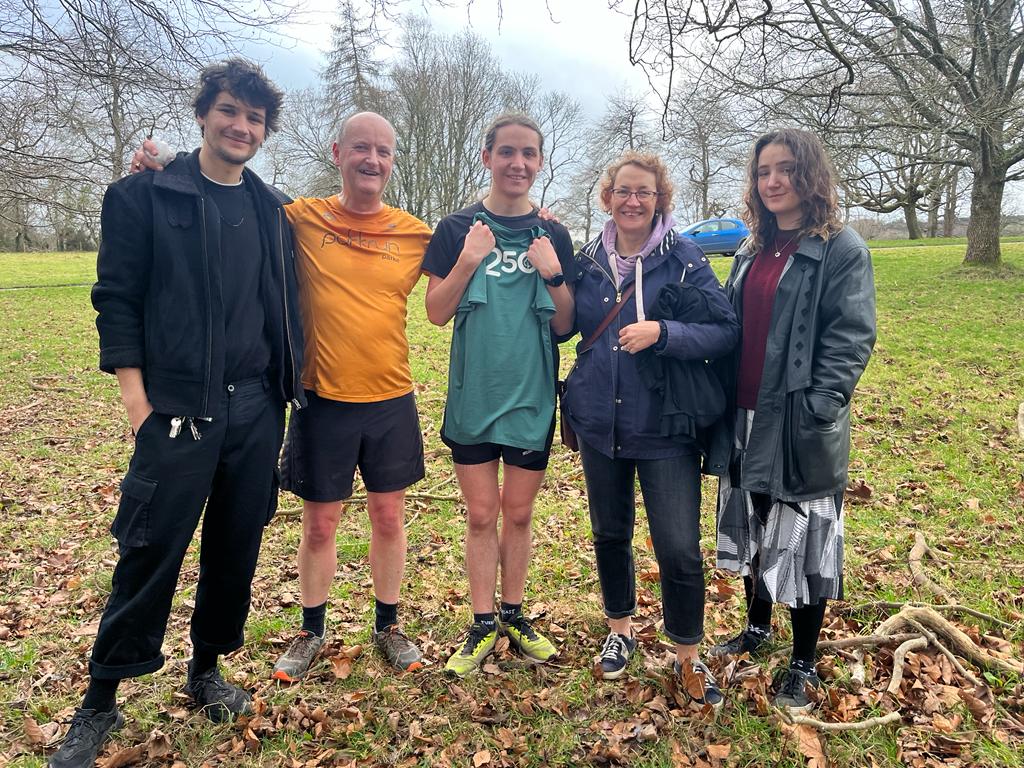
Medieval pubs
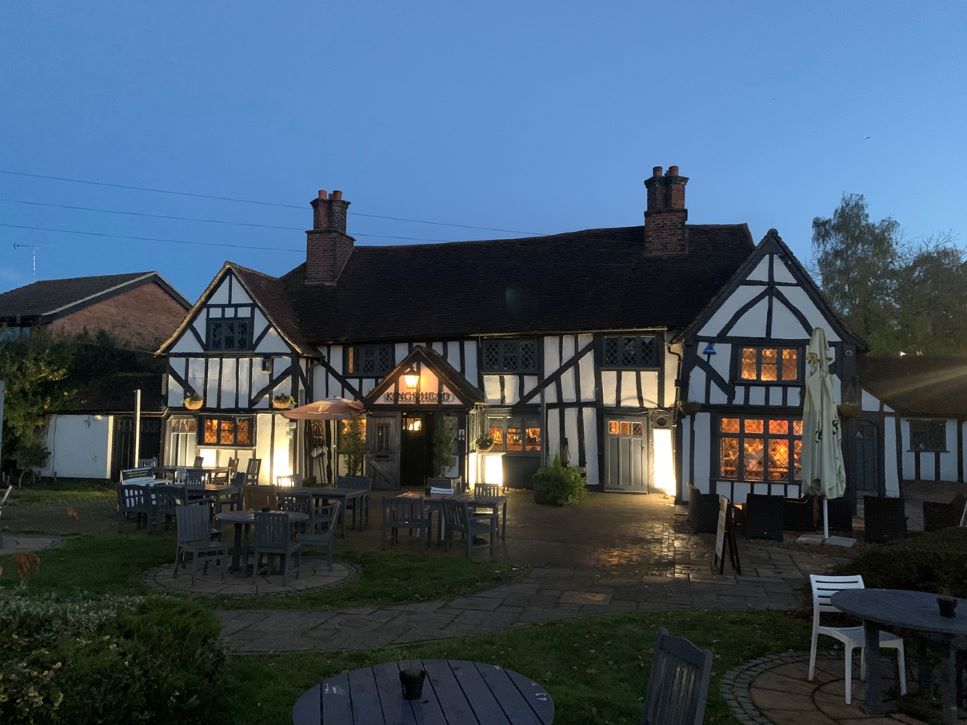
The closure of the Bottle Shop, Moretonhampstead
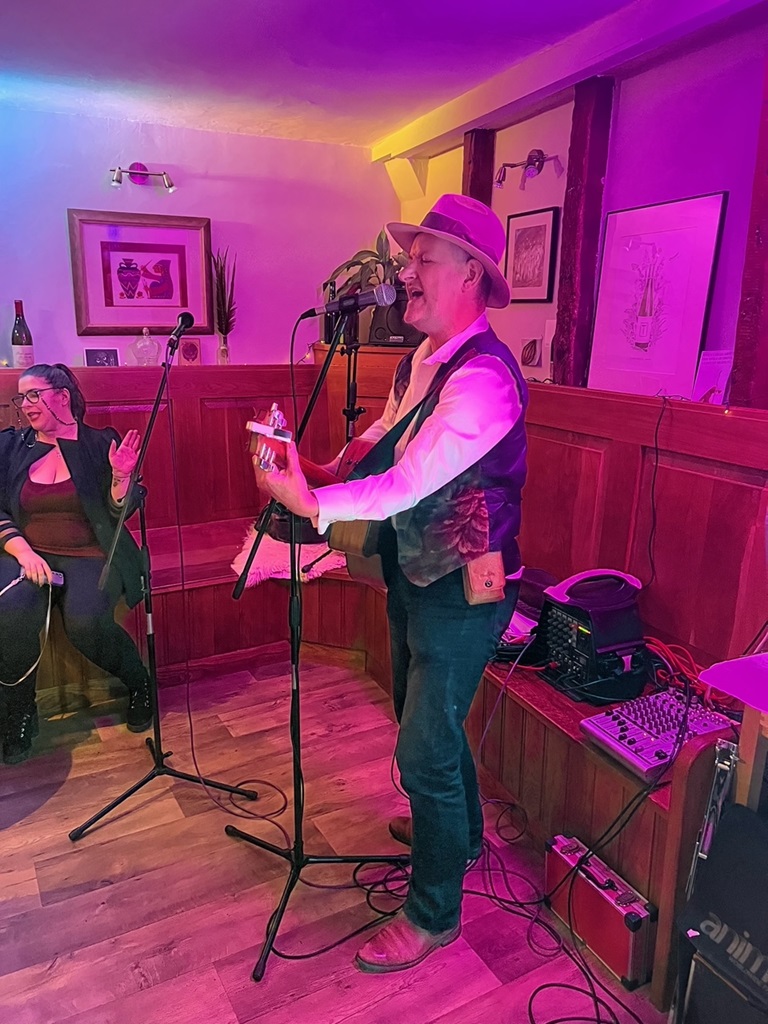
Drewe Arms purchase successful!
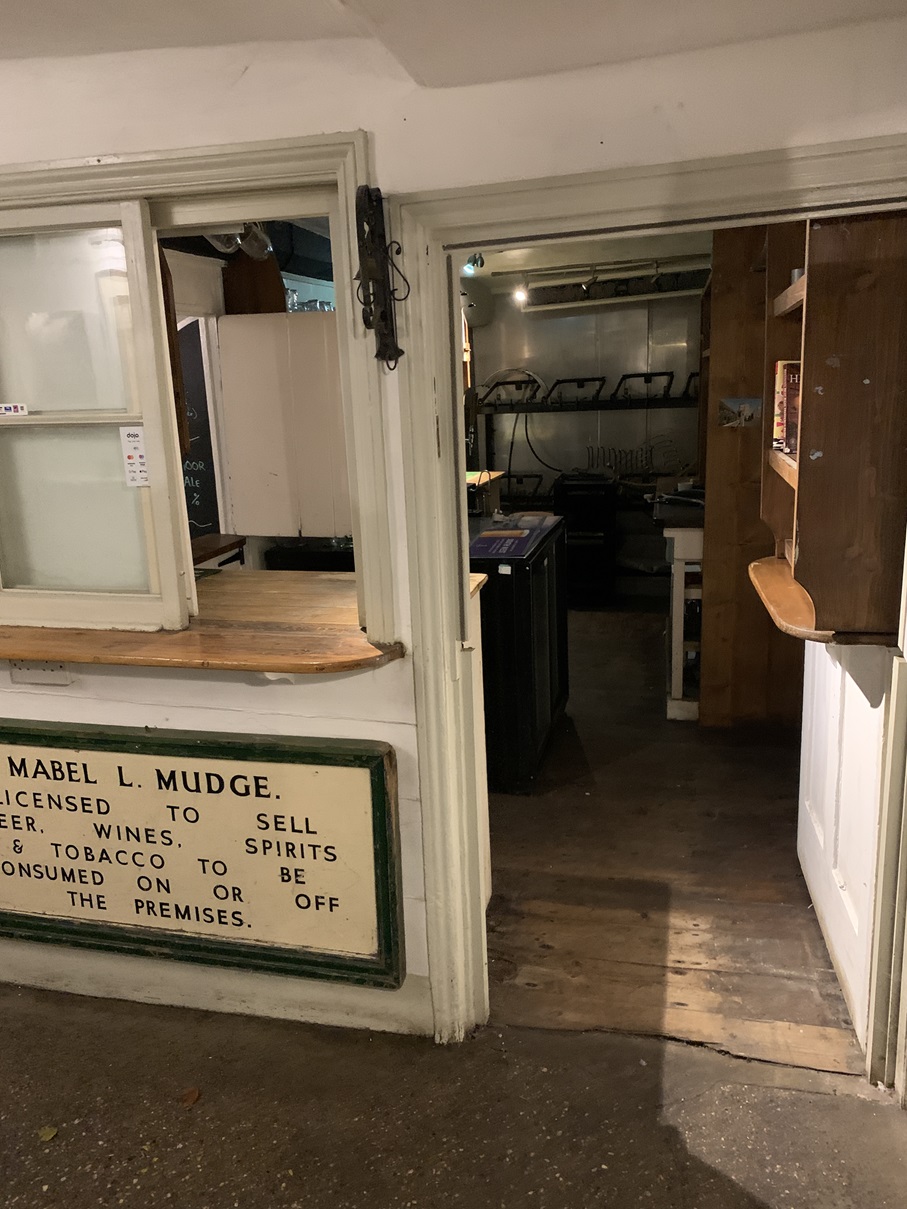
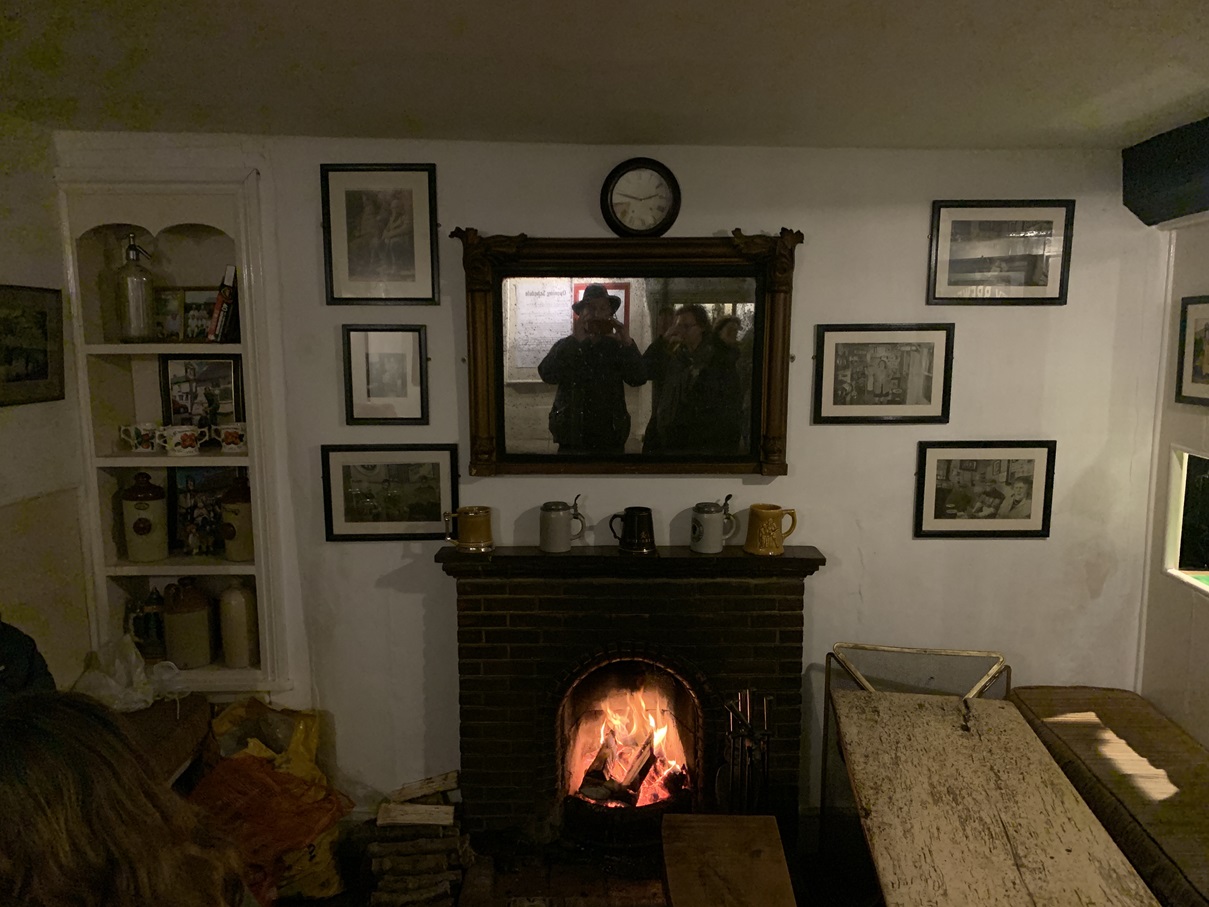
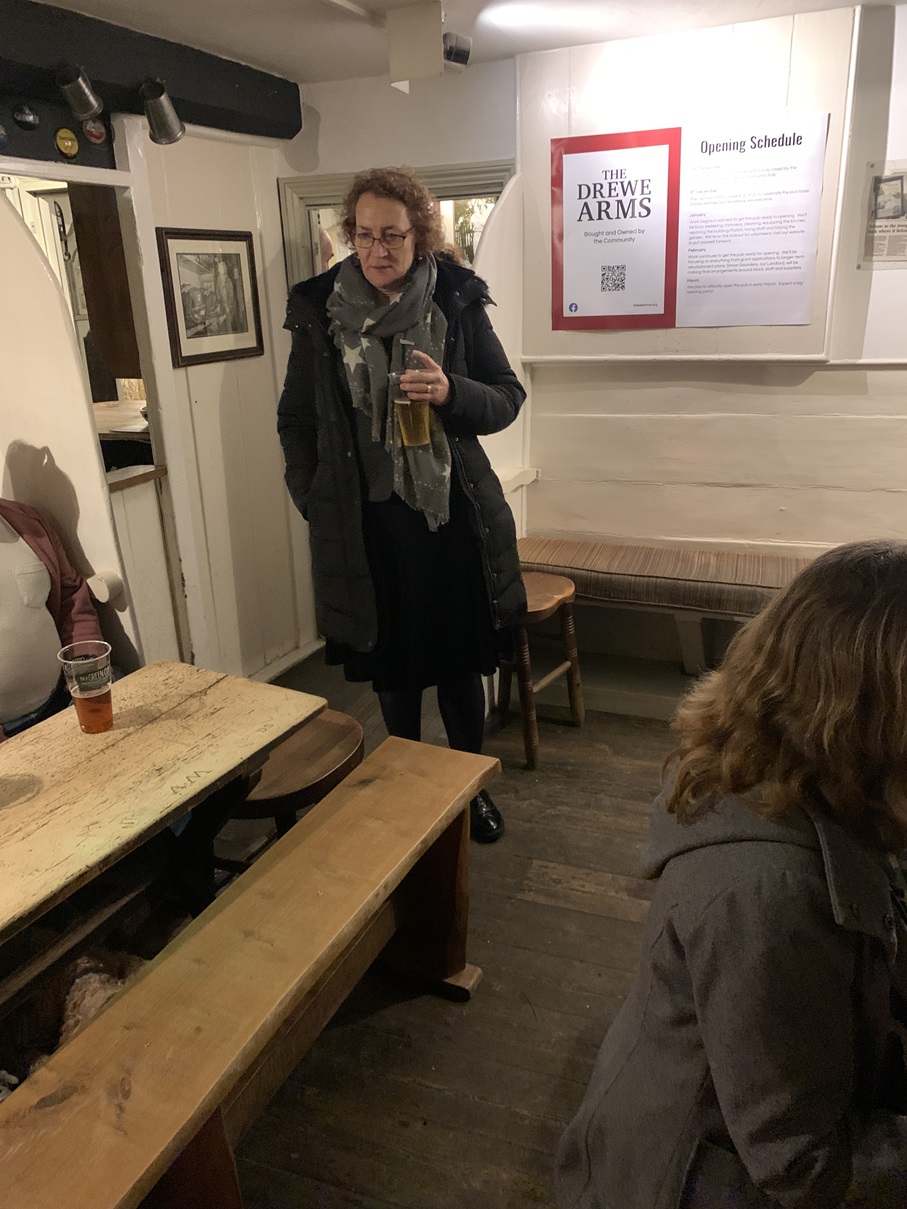
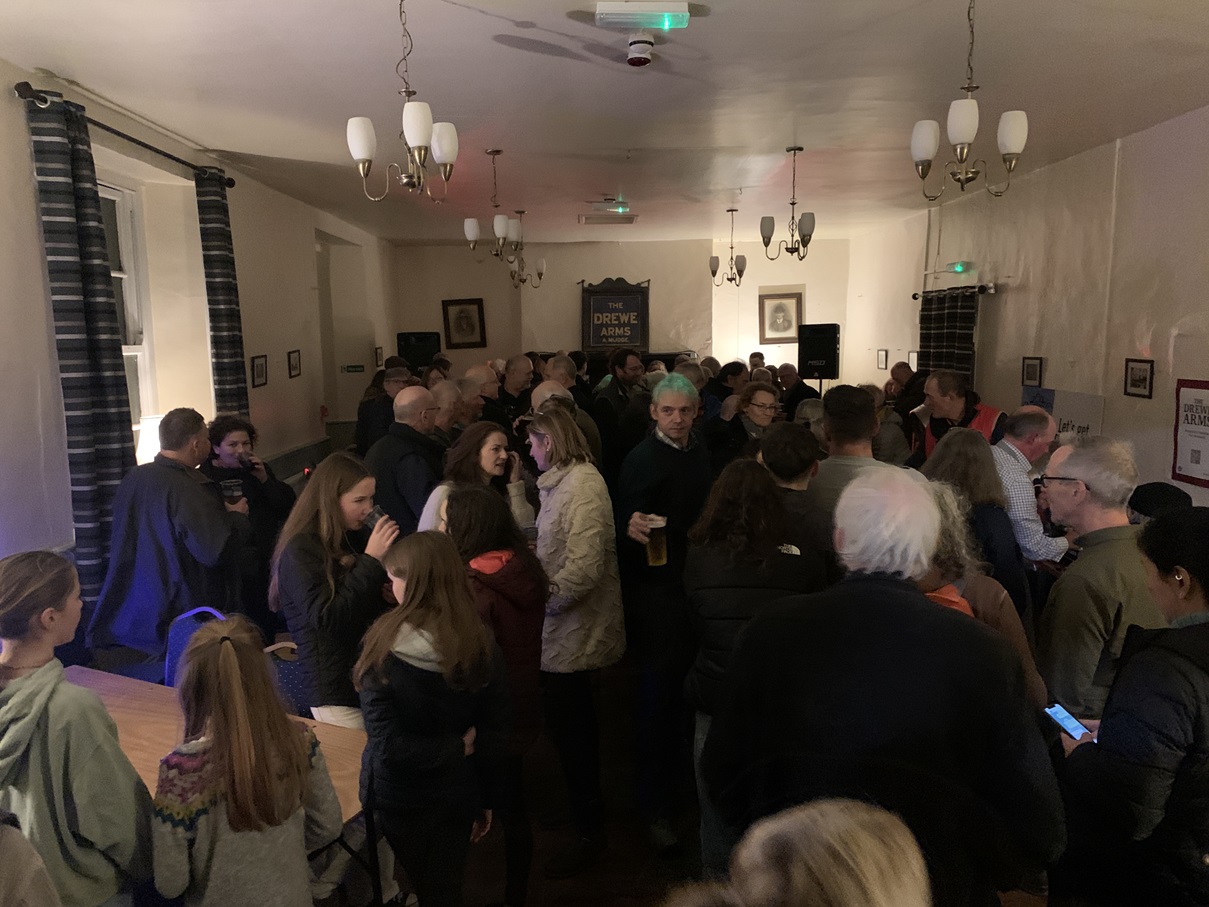
Another trip to France
Drewe Arms community pub
East Prawle
Future project
Trip to France
Willy, Willy, Harry, Stee (again)
Willy, Willy, Harry, Stee
Latitude
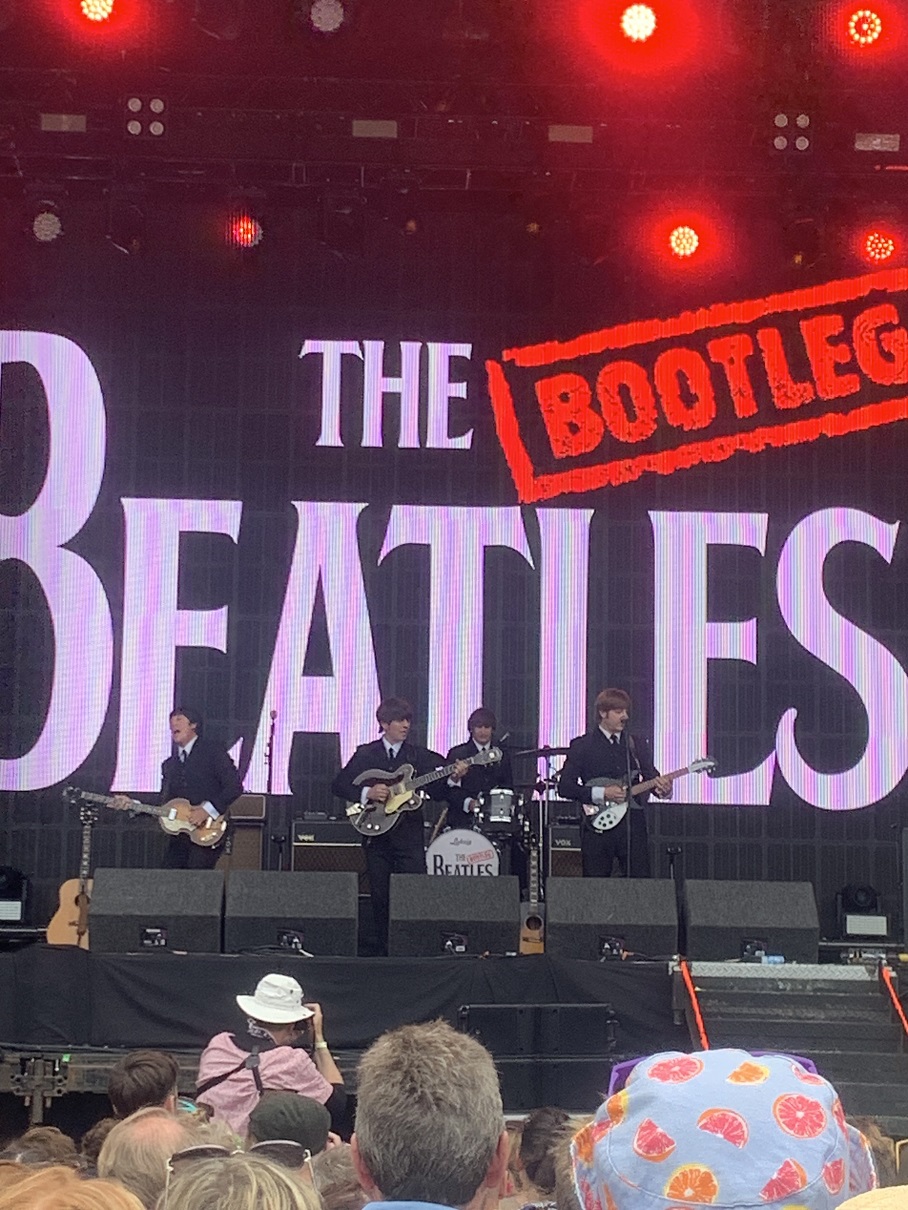

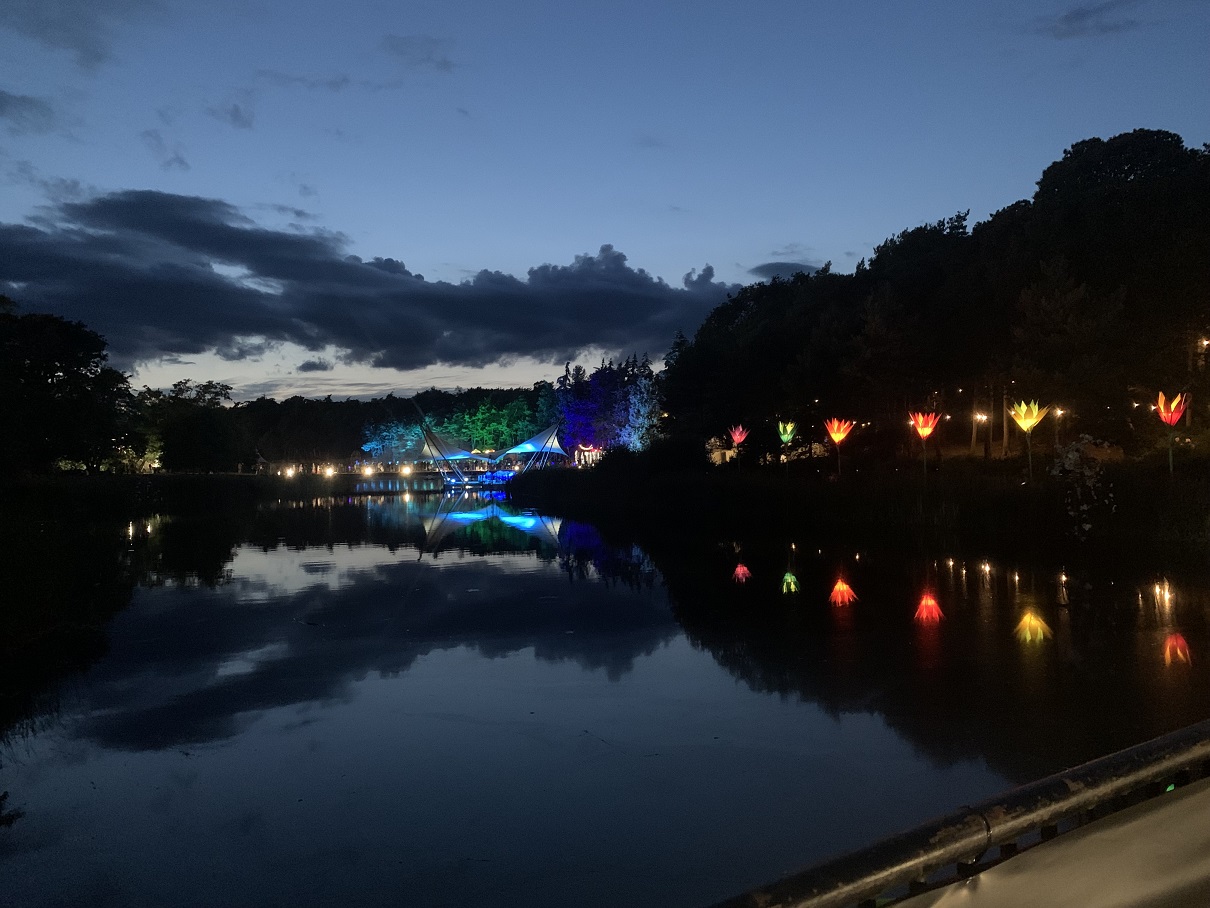
Time Traveller's Guide to Elizabethan England
Medieval pubs
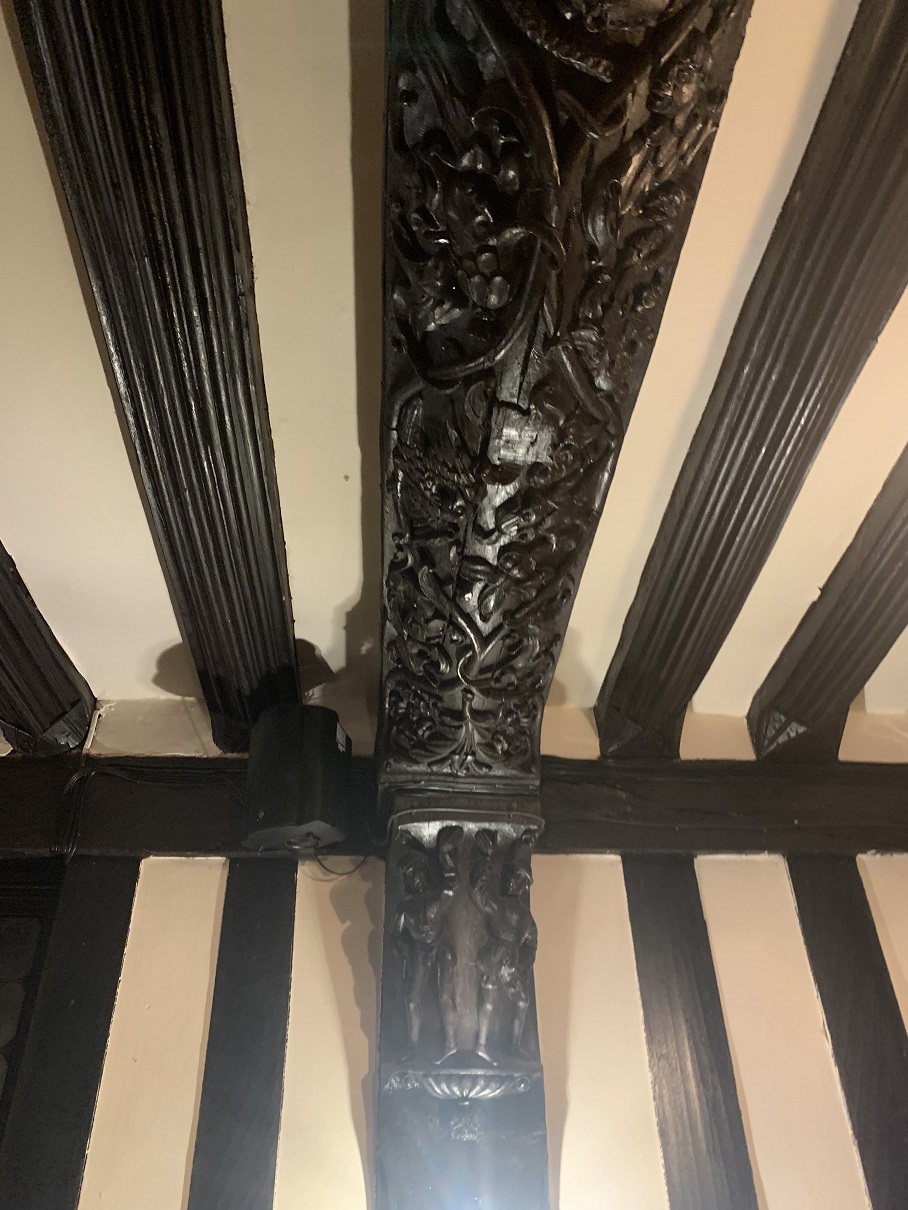
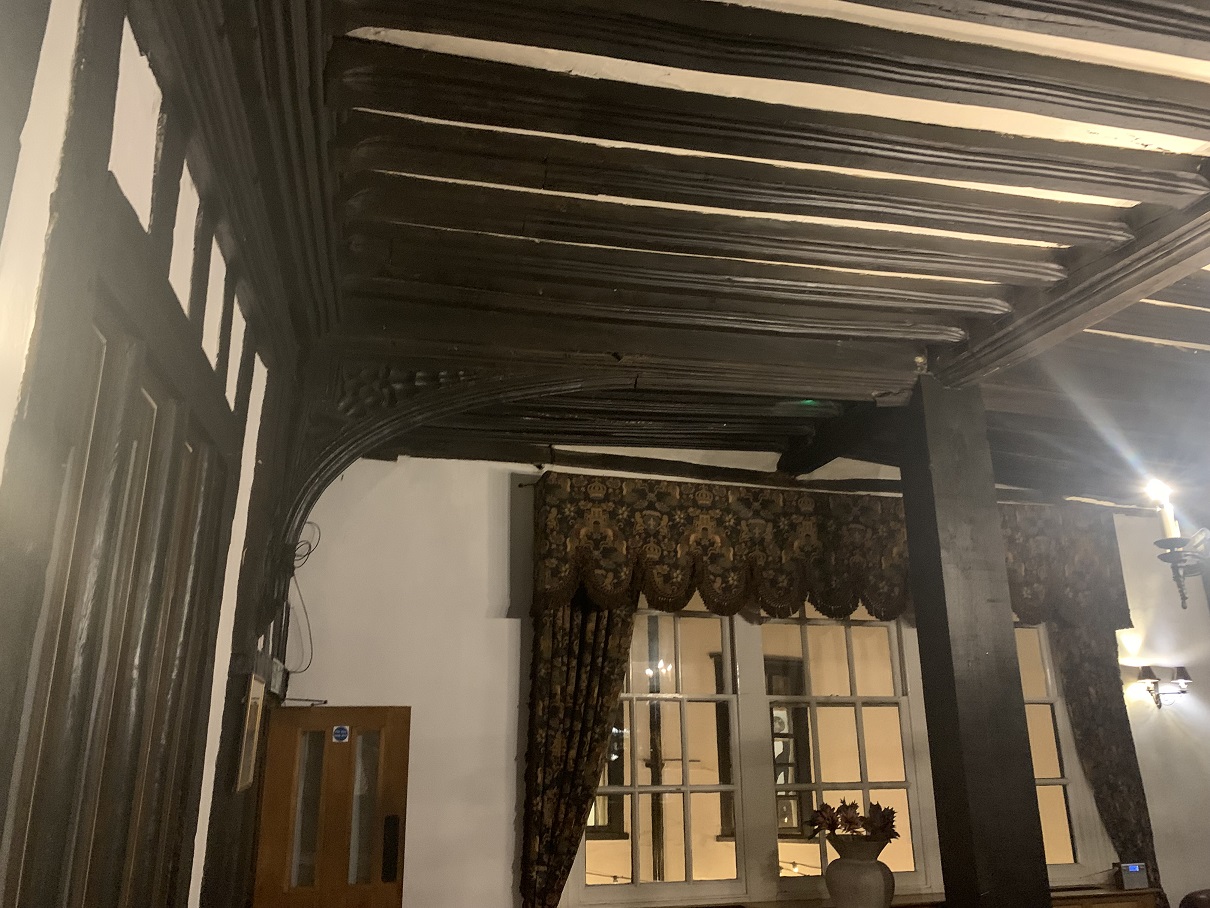
That Shakespeare Life

Liverpool


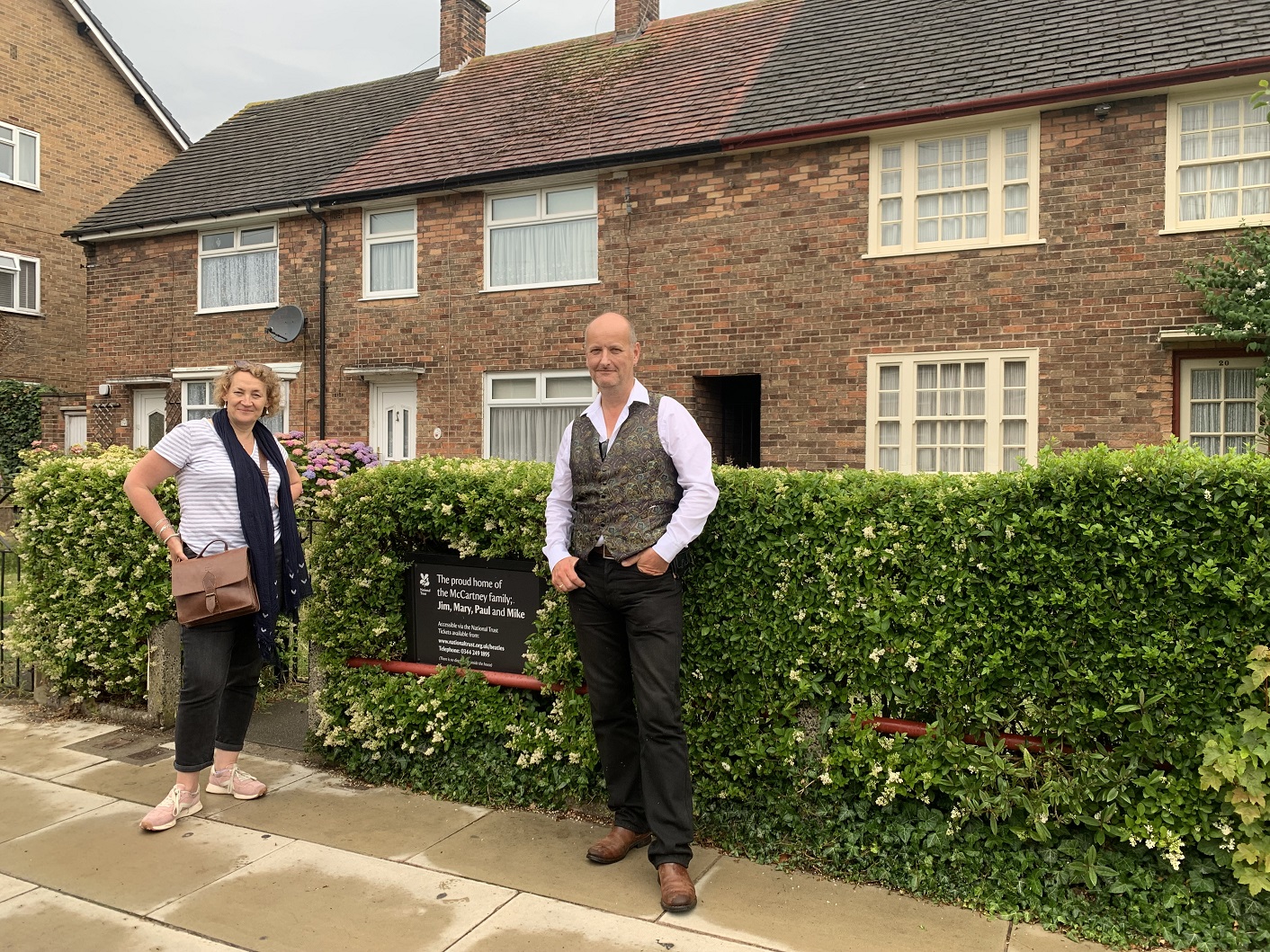

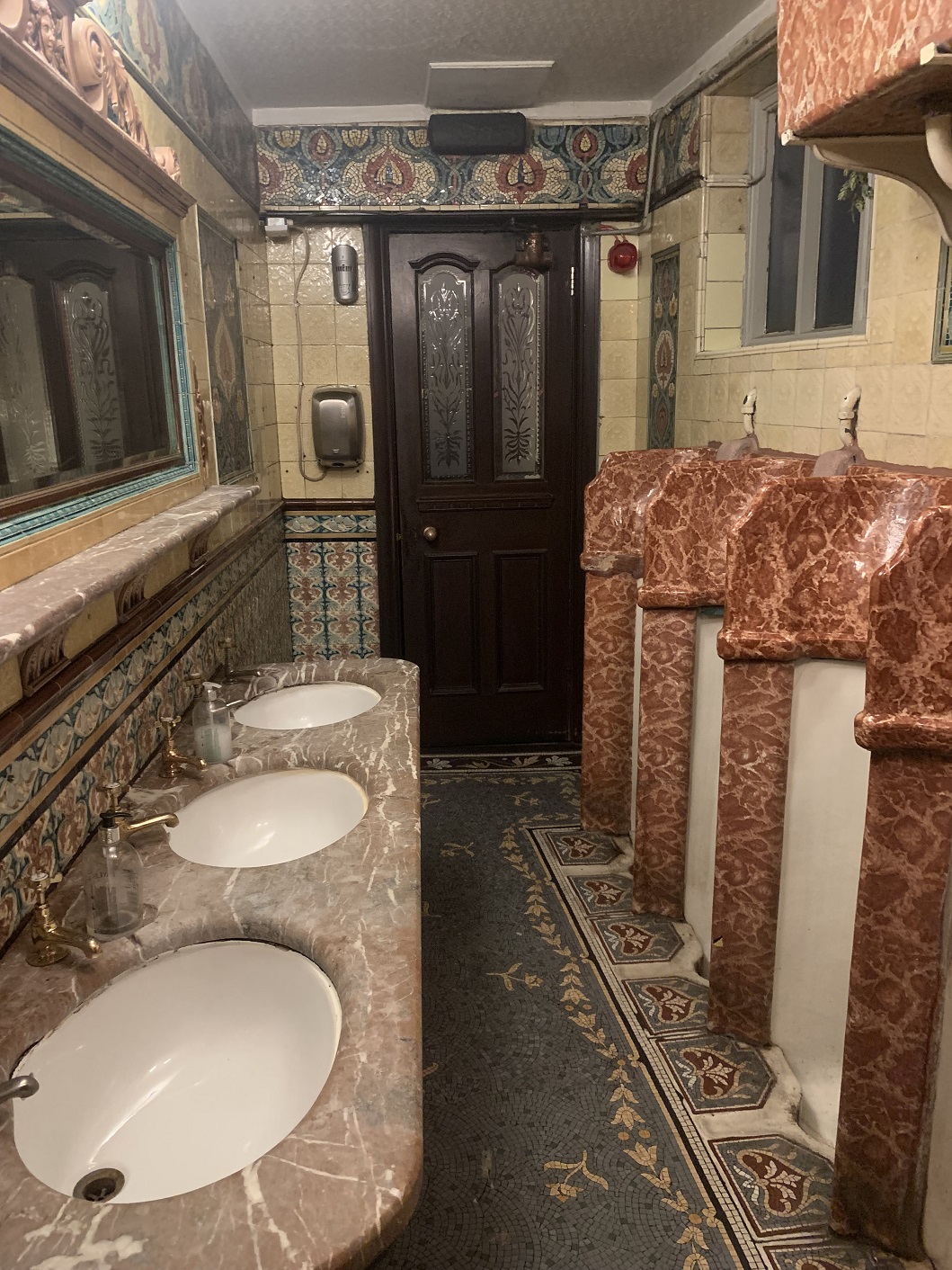

Medieval Horizons
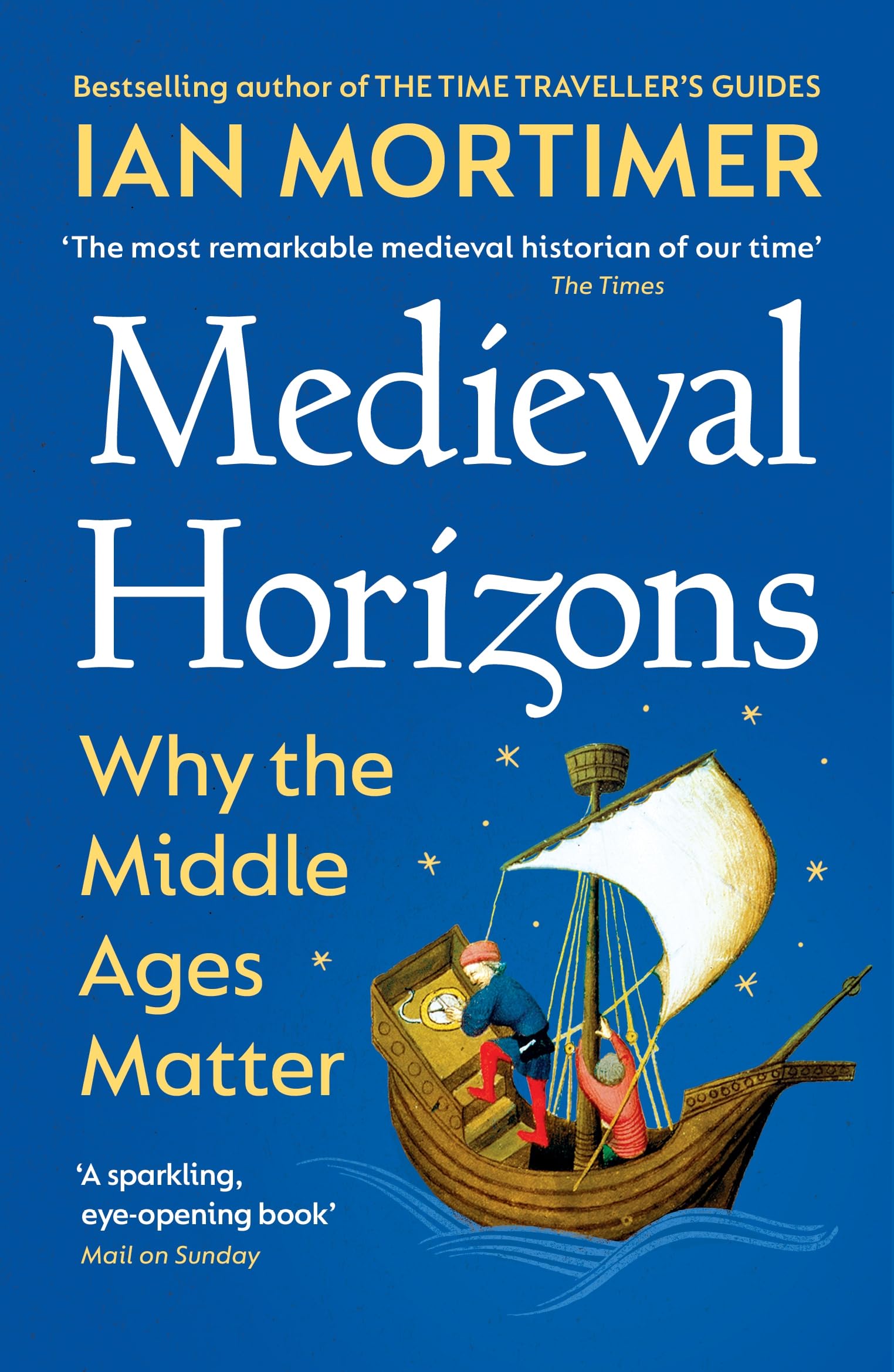
Martin Amis
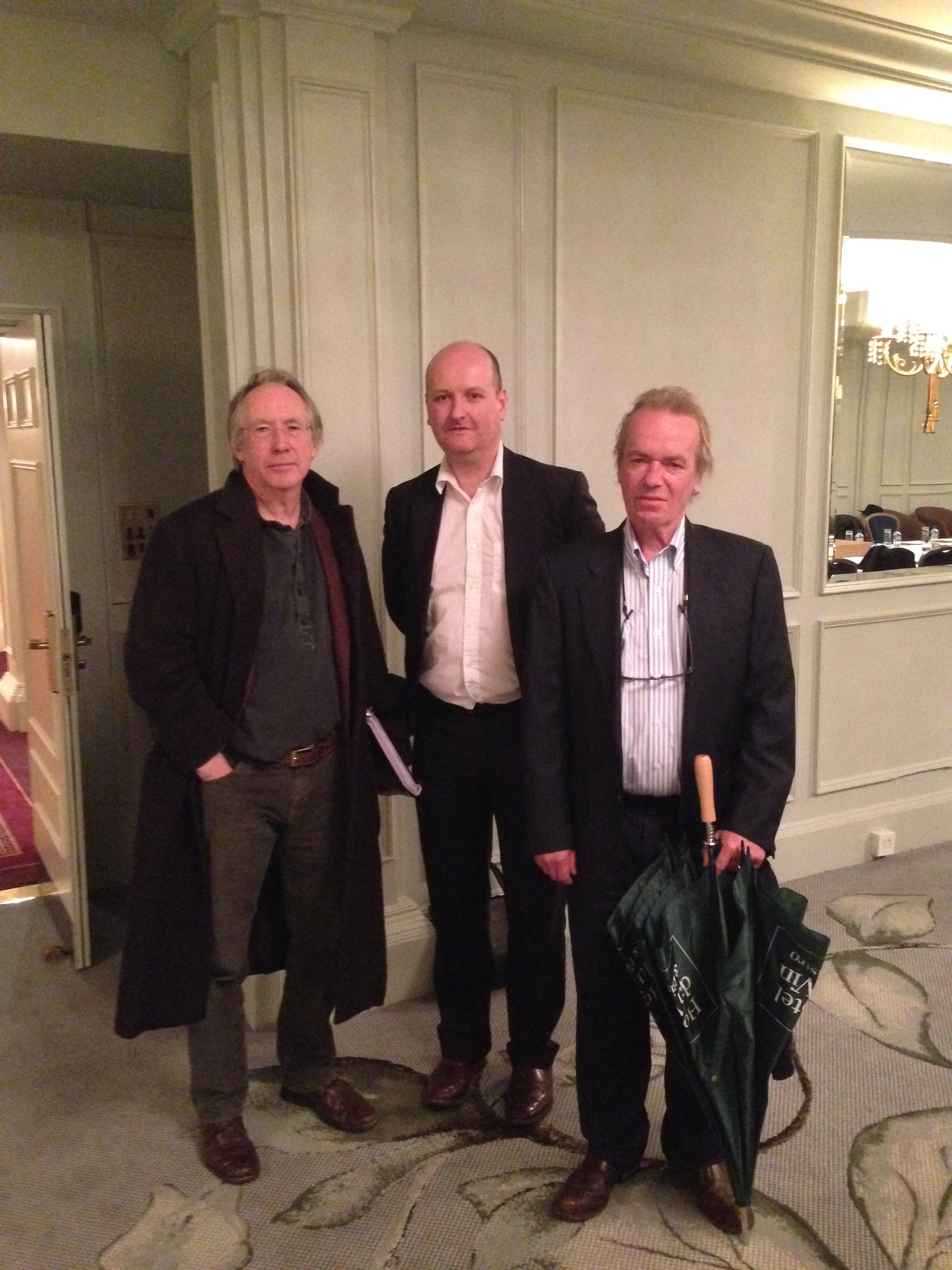
New book about the medieval Mortimers

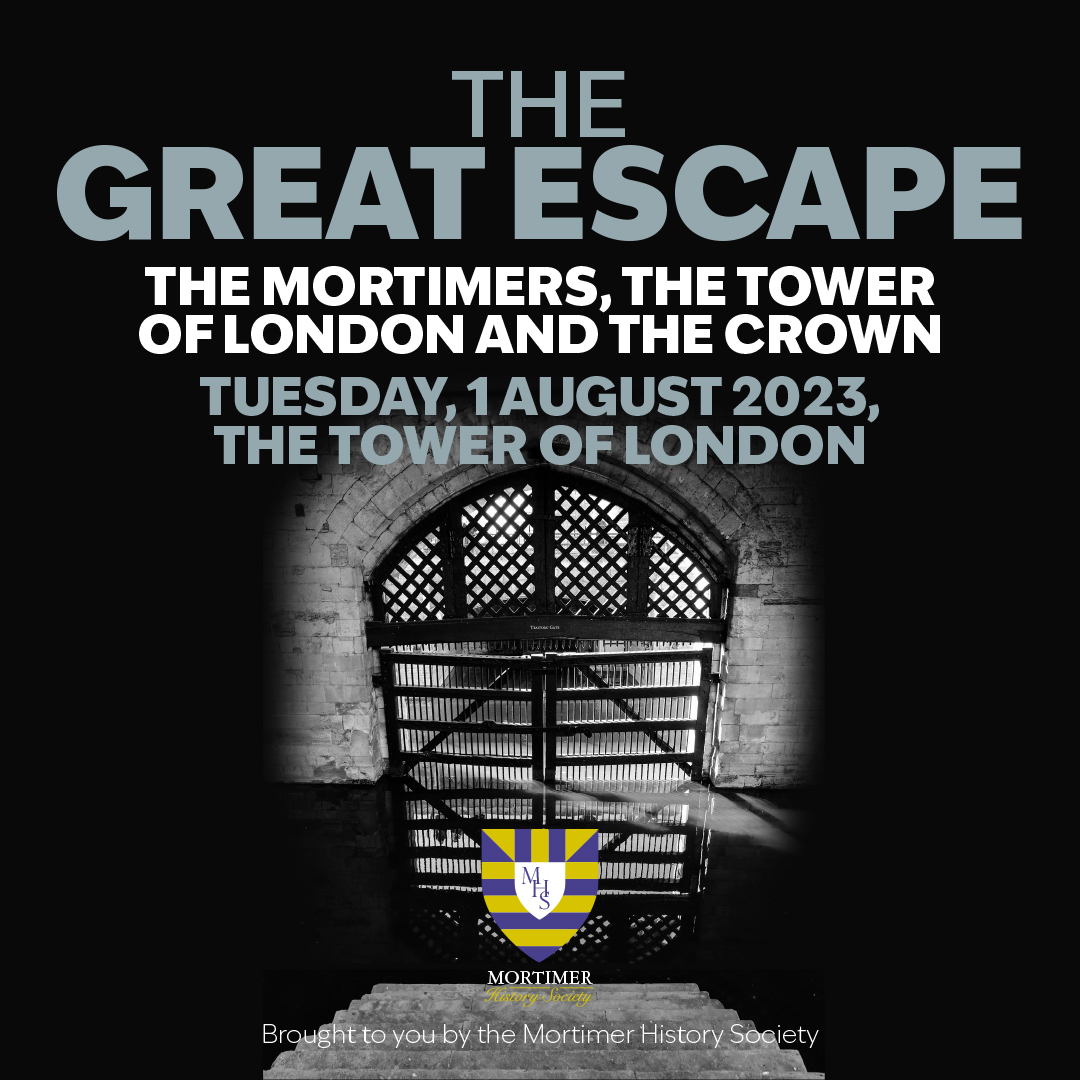
Podcast interview on the Speed of Travel
Lecture by Prof. Ron Hutton
Brighton Half-Marathon
Edward III wins the debate for the Greatest British monarch

Signed copies of Medieval Horizons
Publication day for Medieval Horizons
Second review of Medieval Horizons
First review of Medieval Horizons
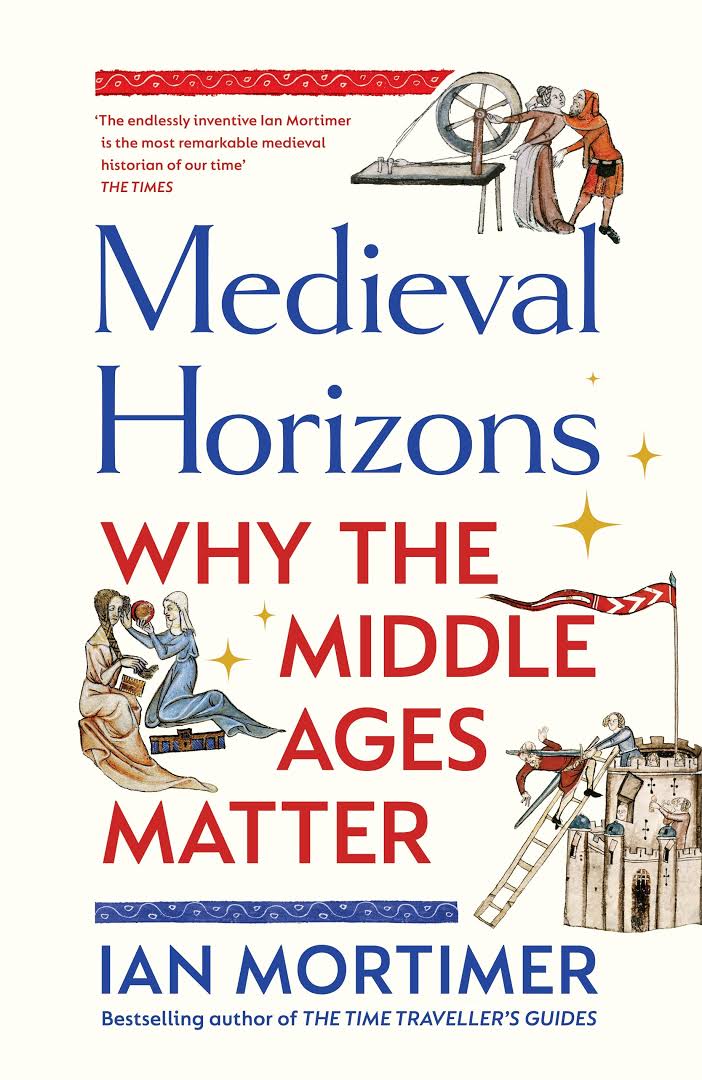
In Greek - for the first time
Second medieval pub safari of the year
New book arrived
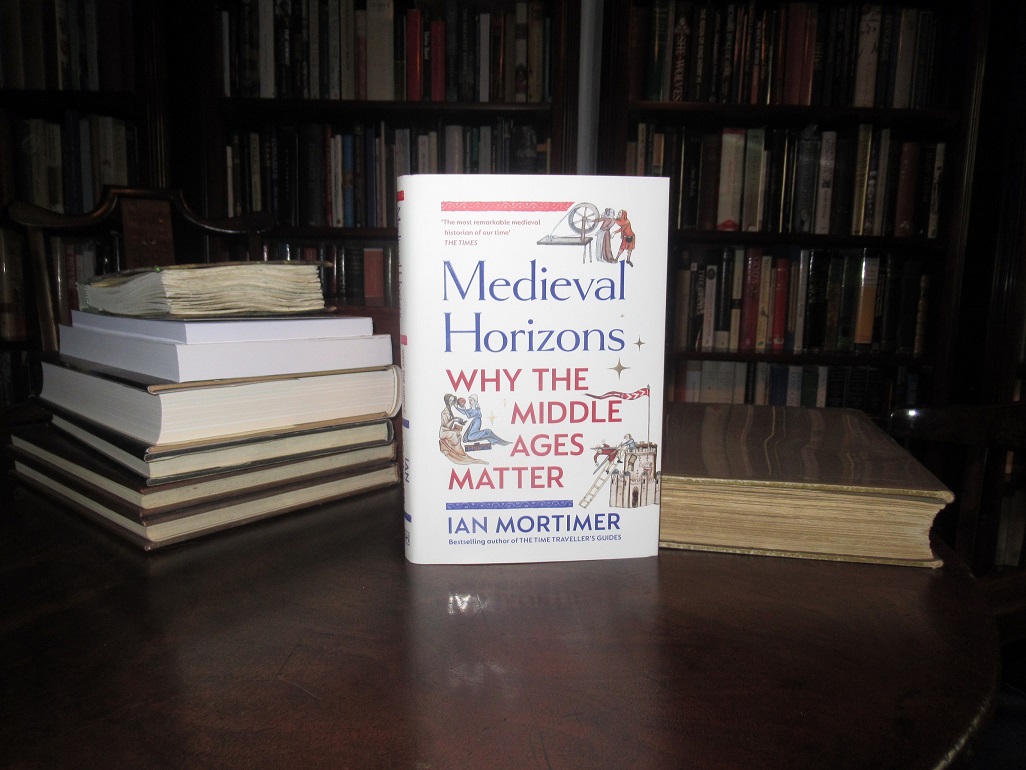
First medieval pub safari of the year
Happy New Year
What was new in other years
2022
2021
2020
2019
2018
2017
2016
2015
2014
2013
2012
2011
2010
2009
2008
